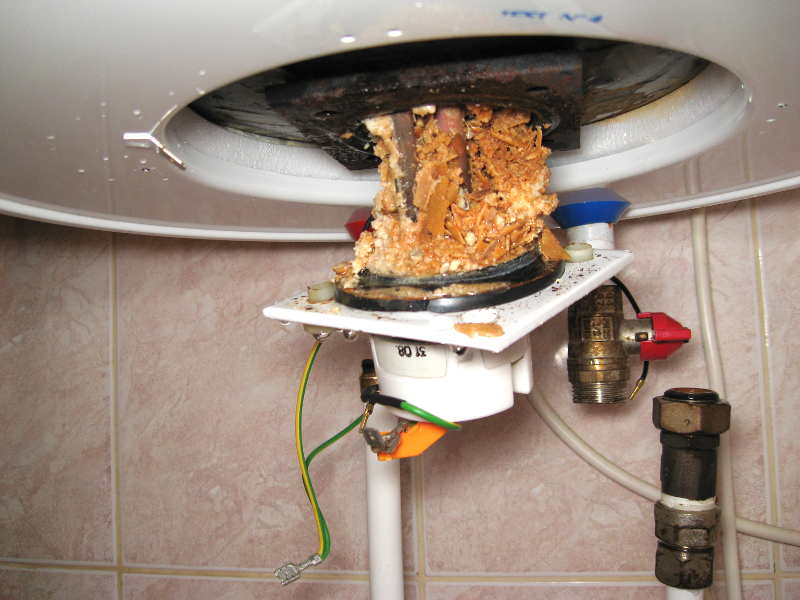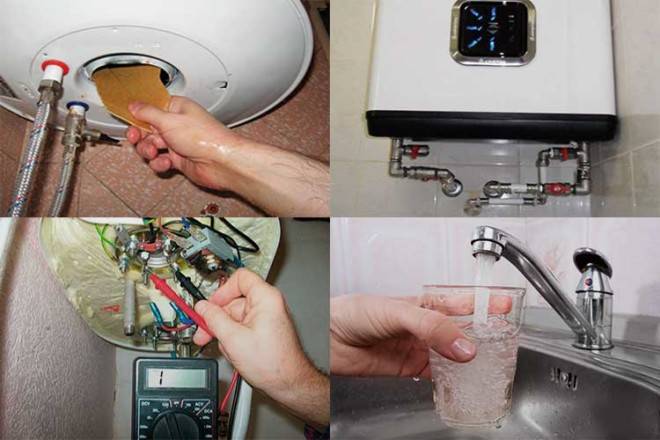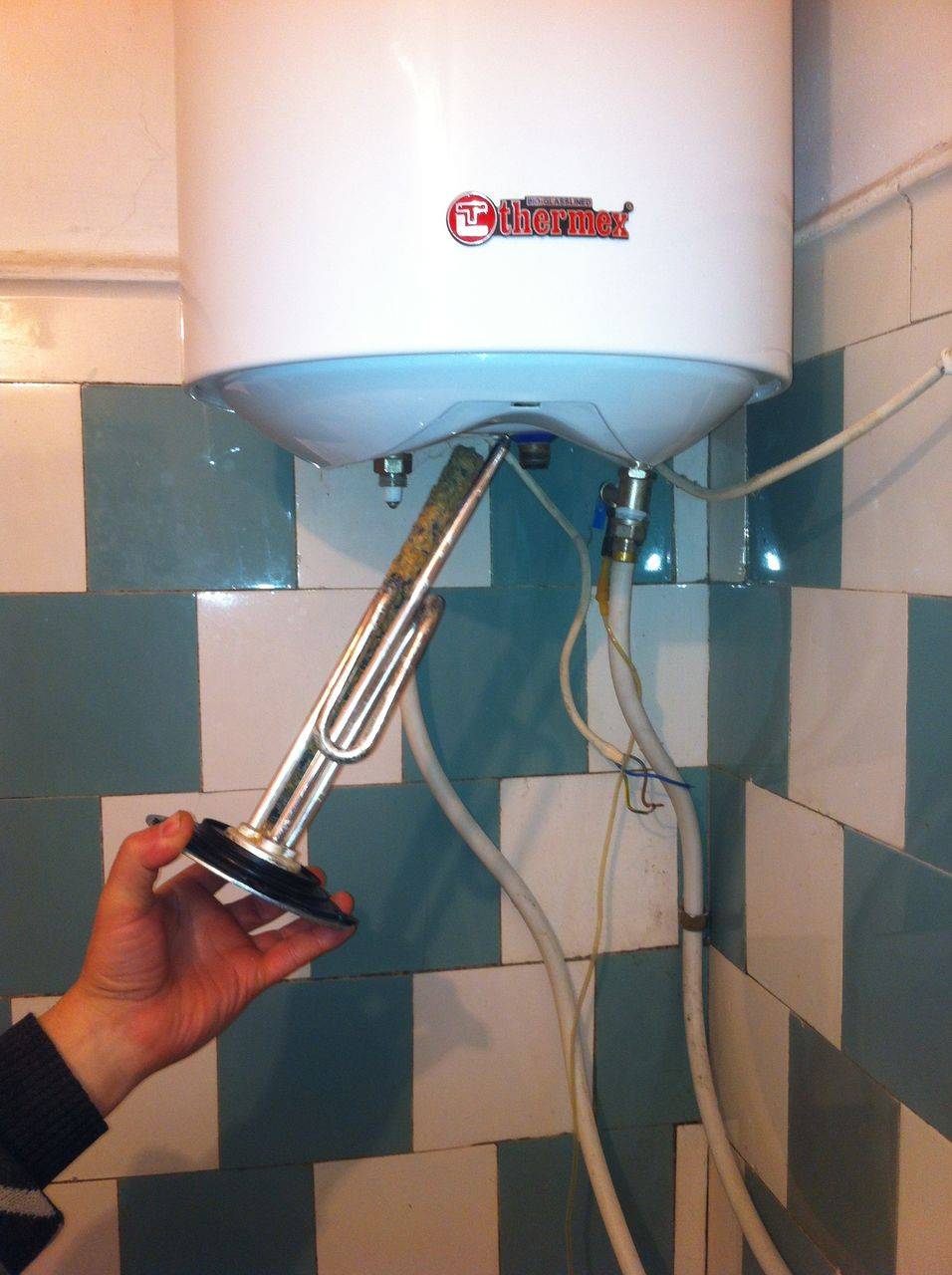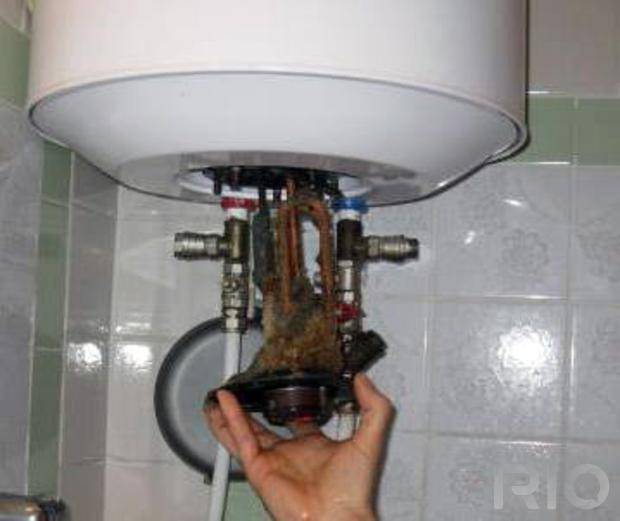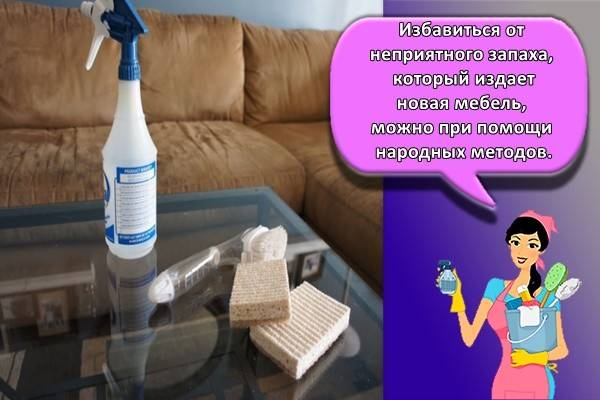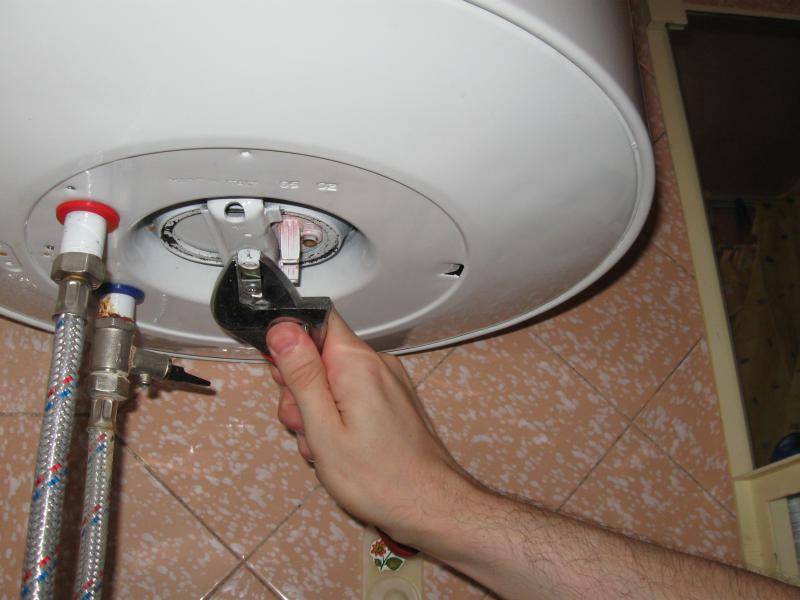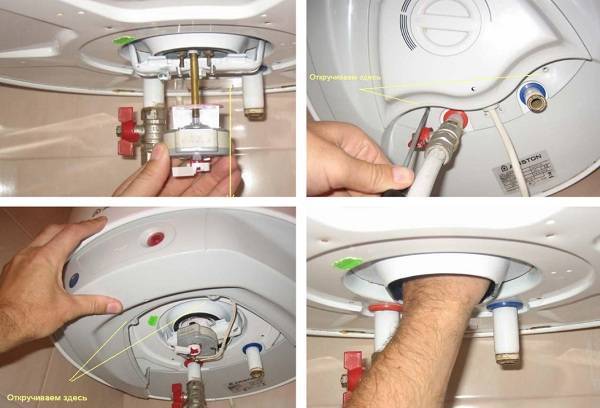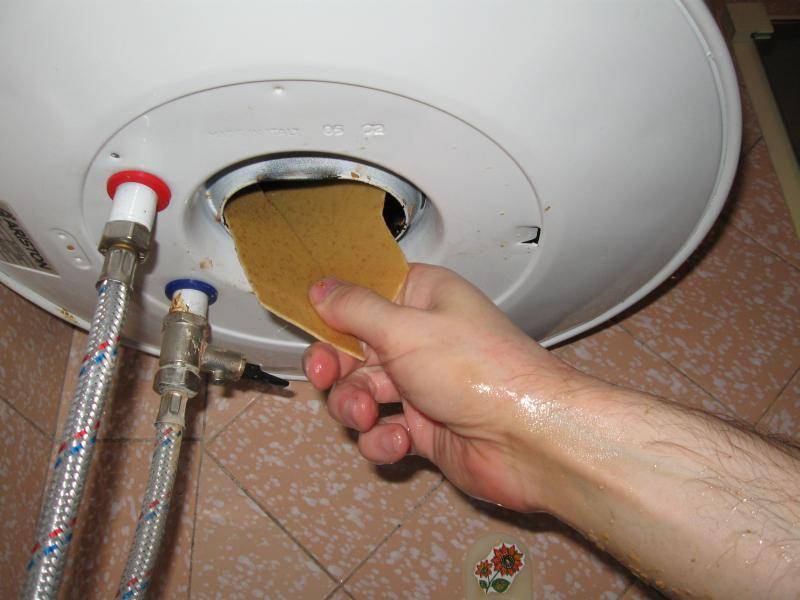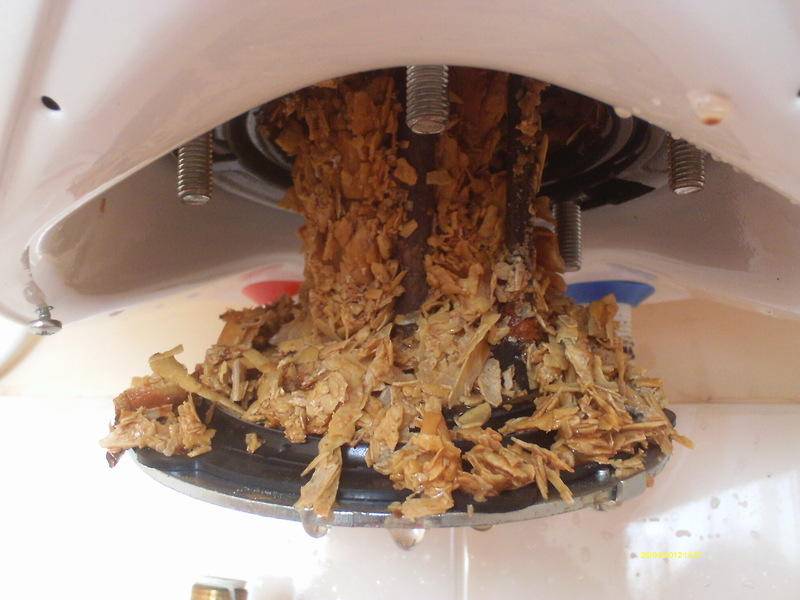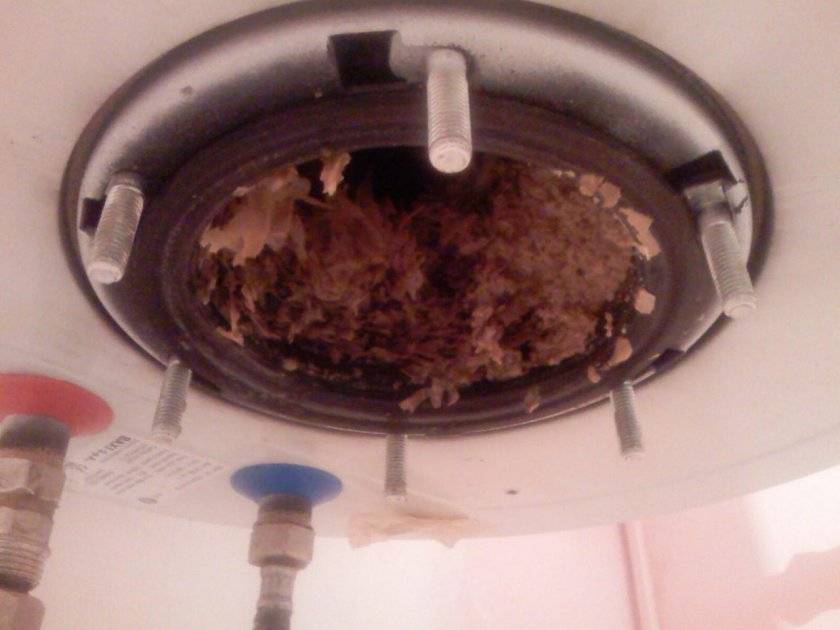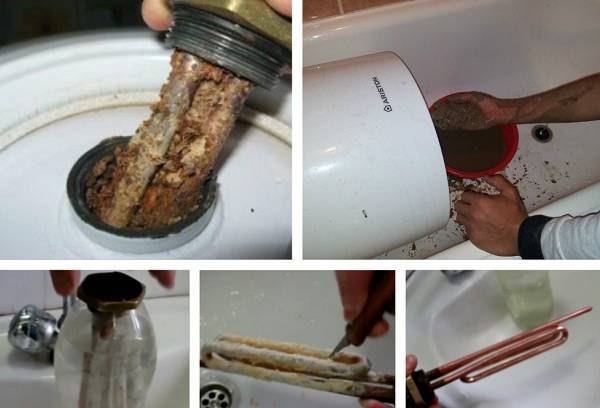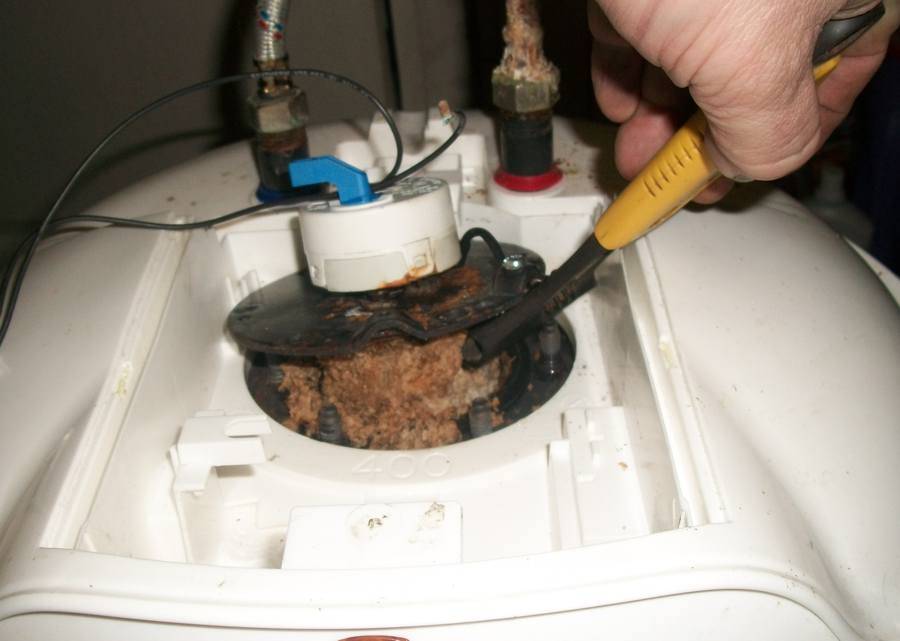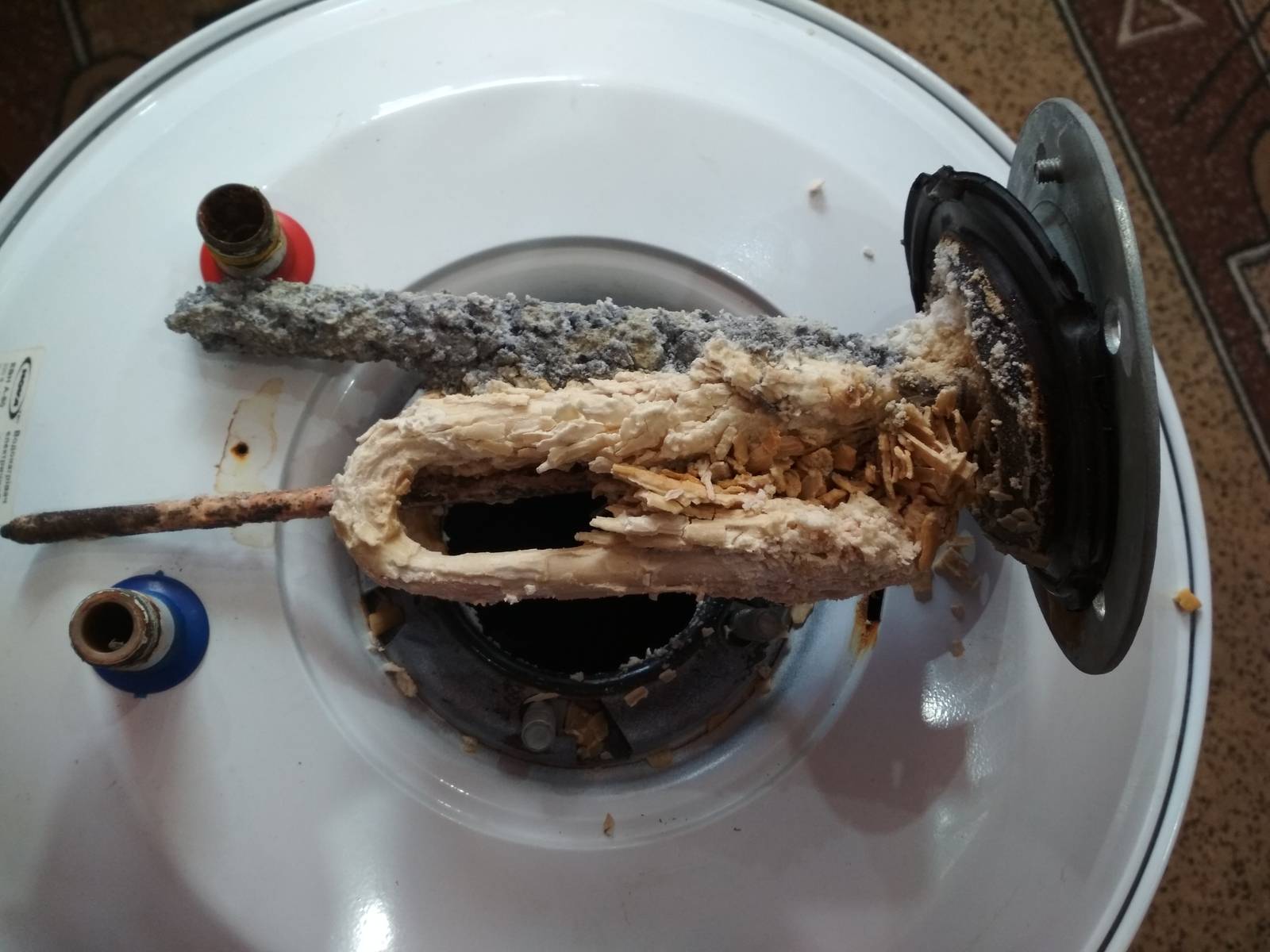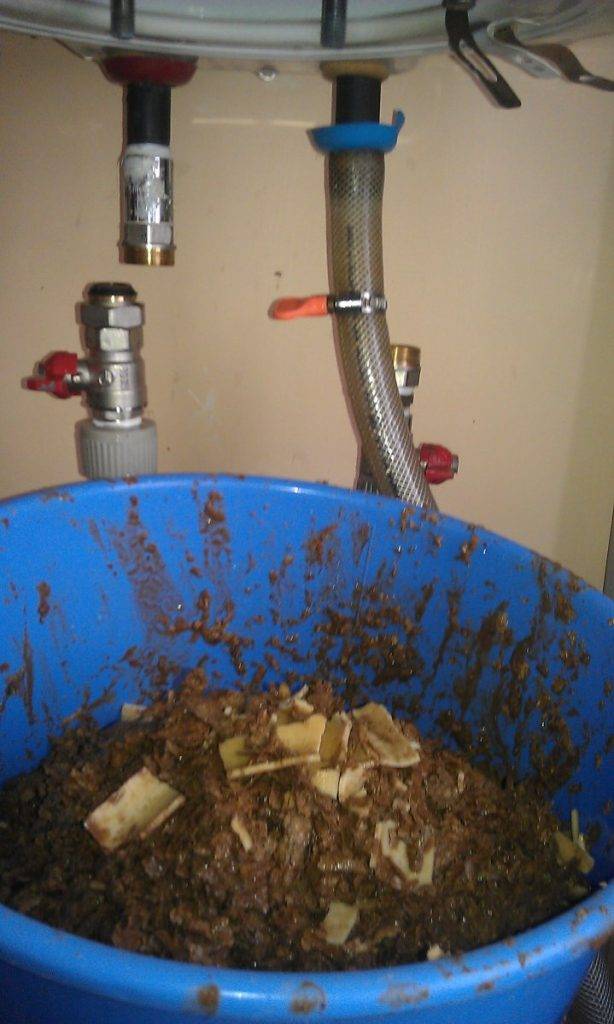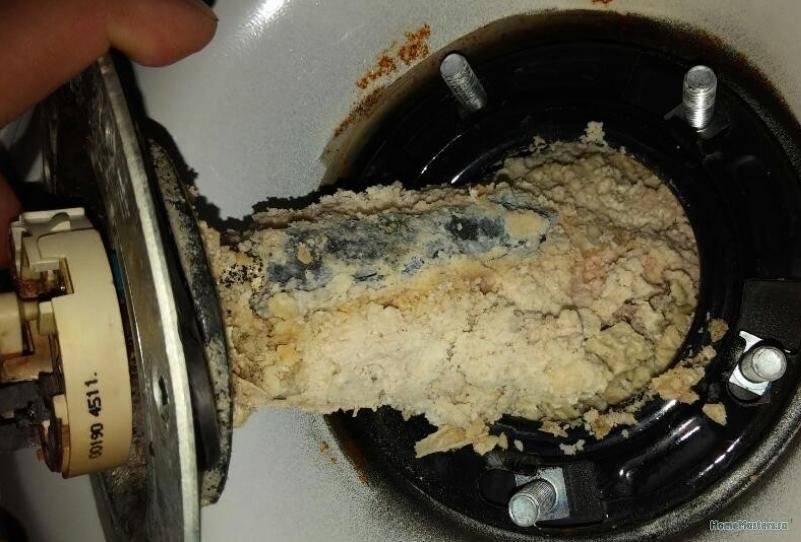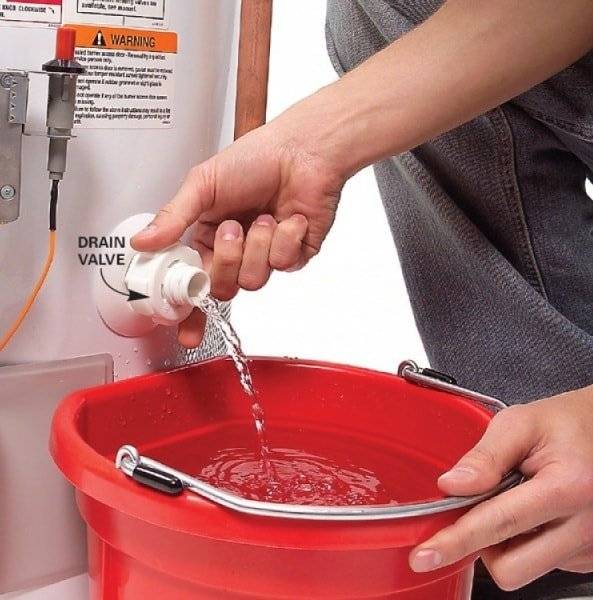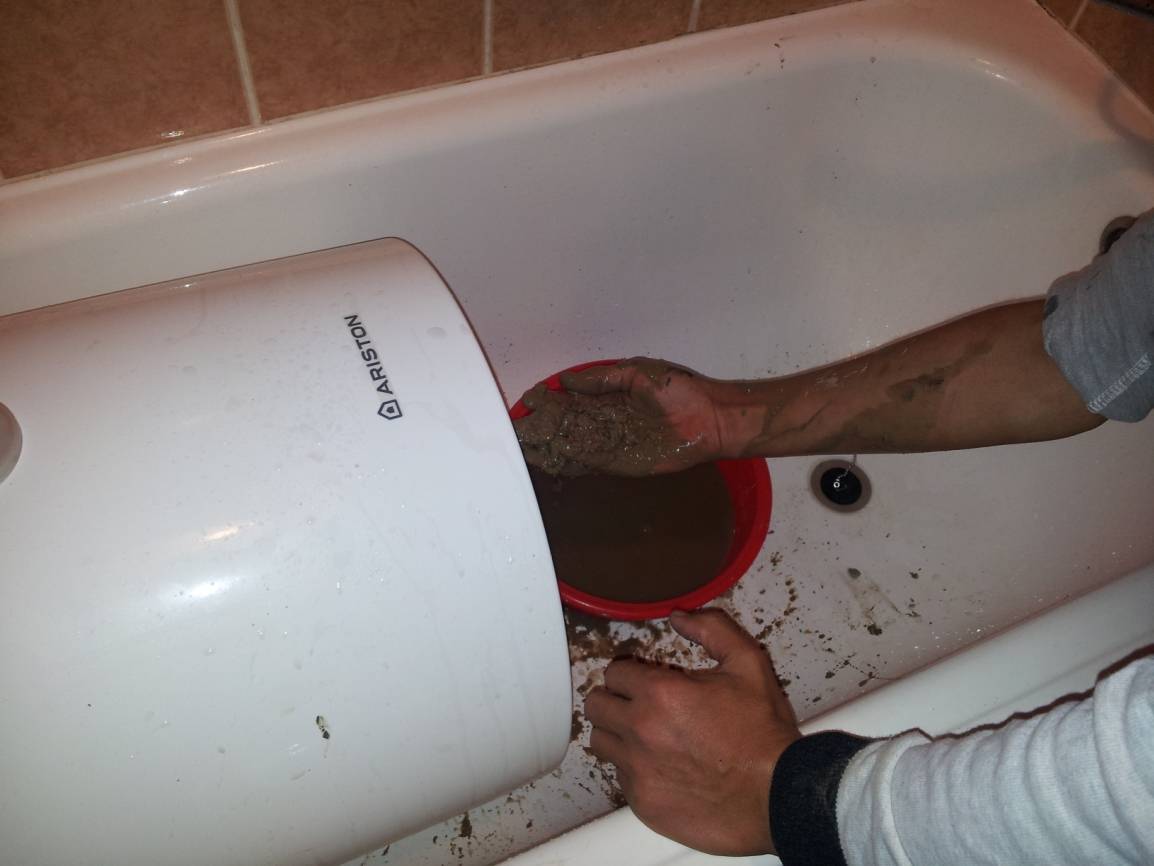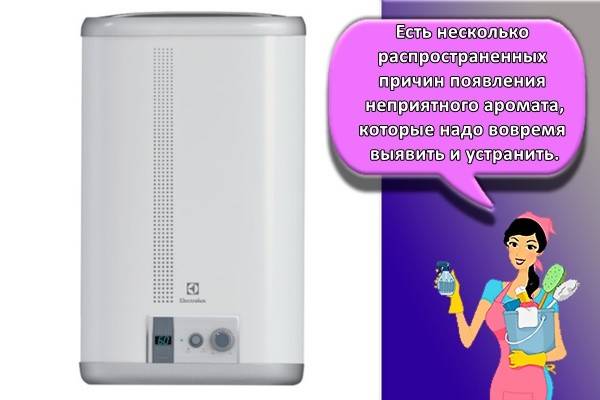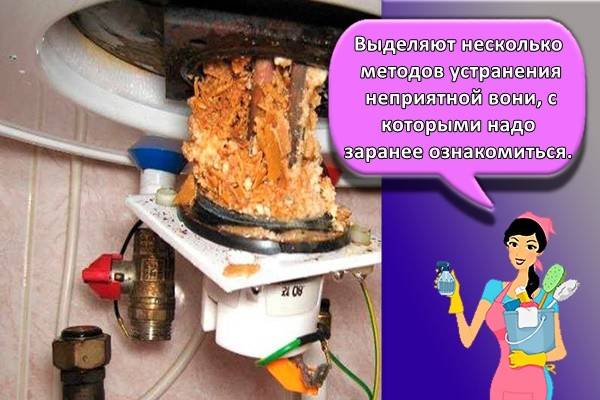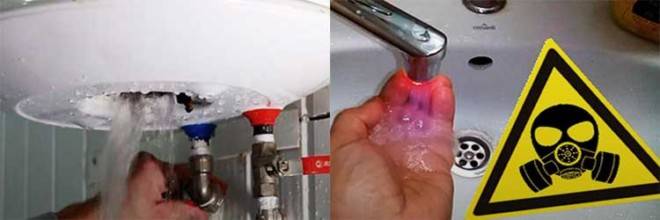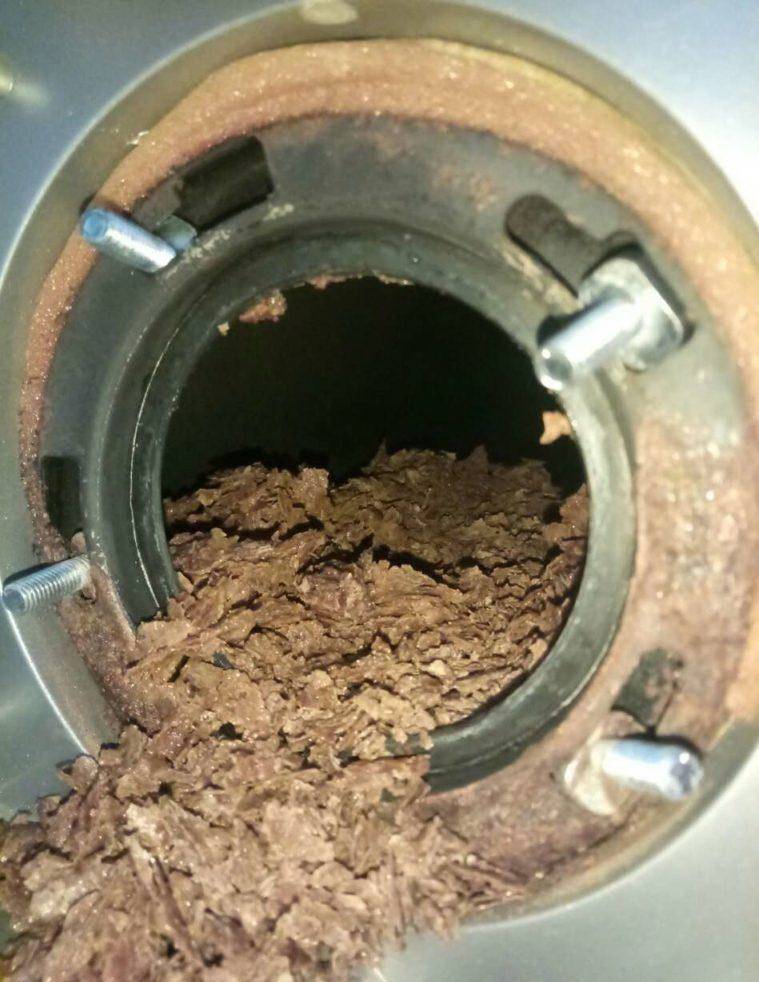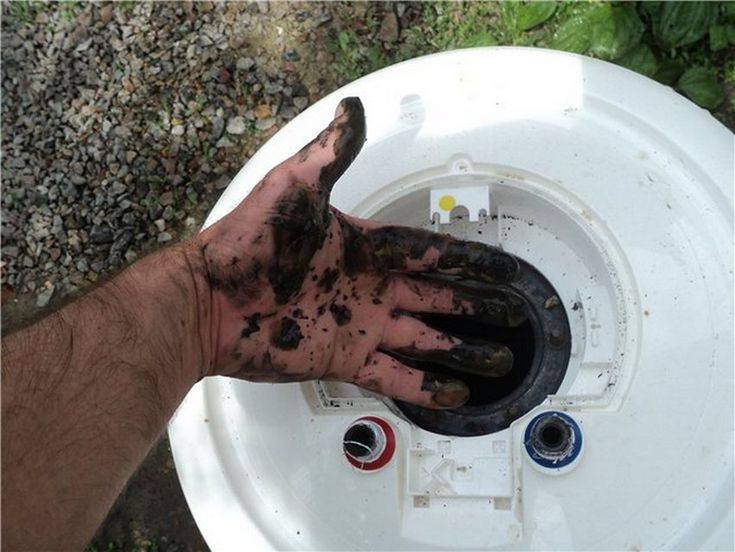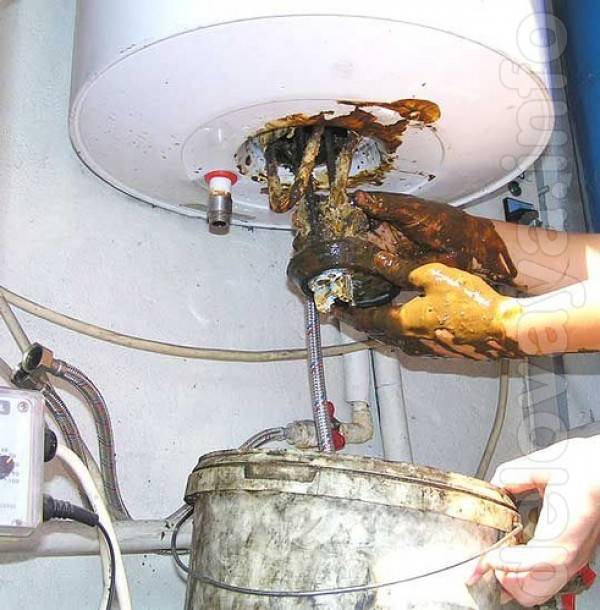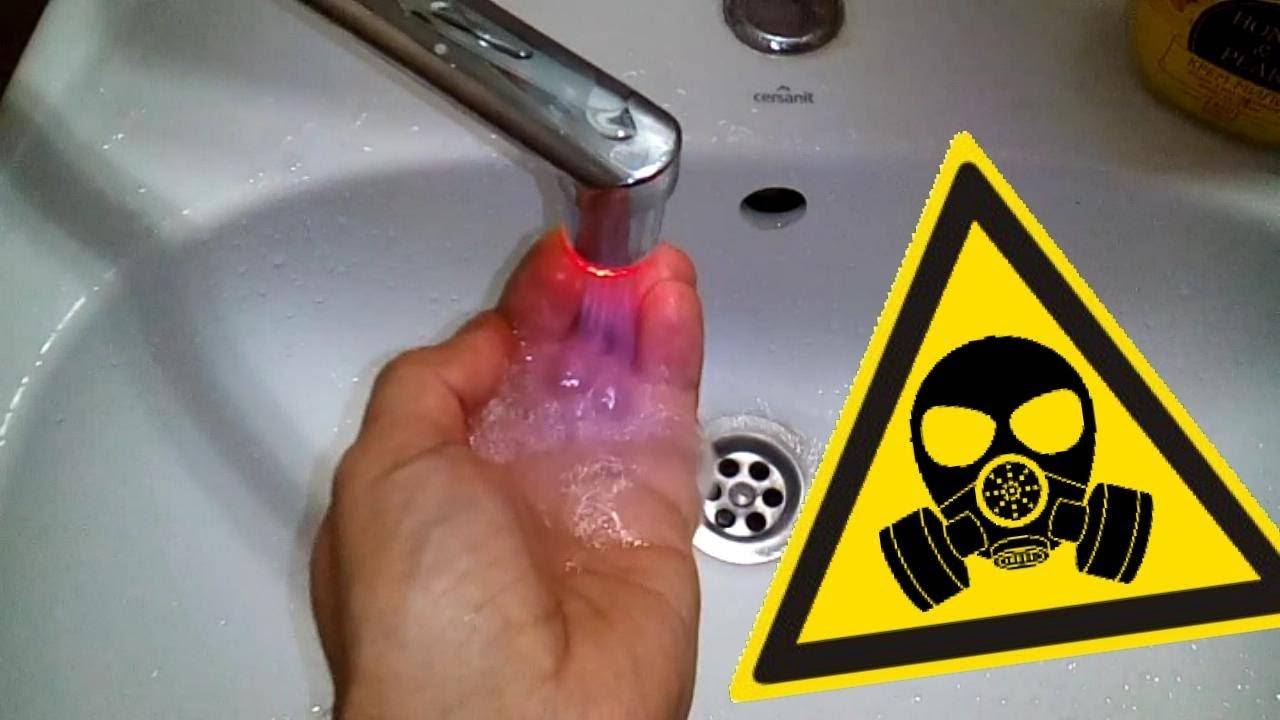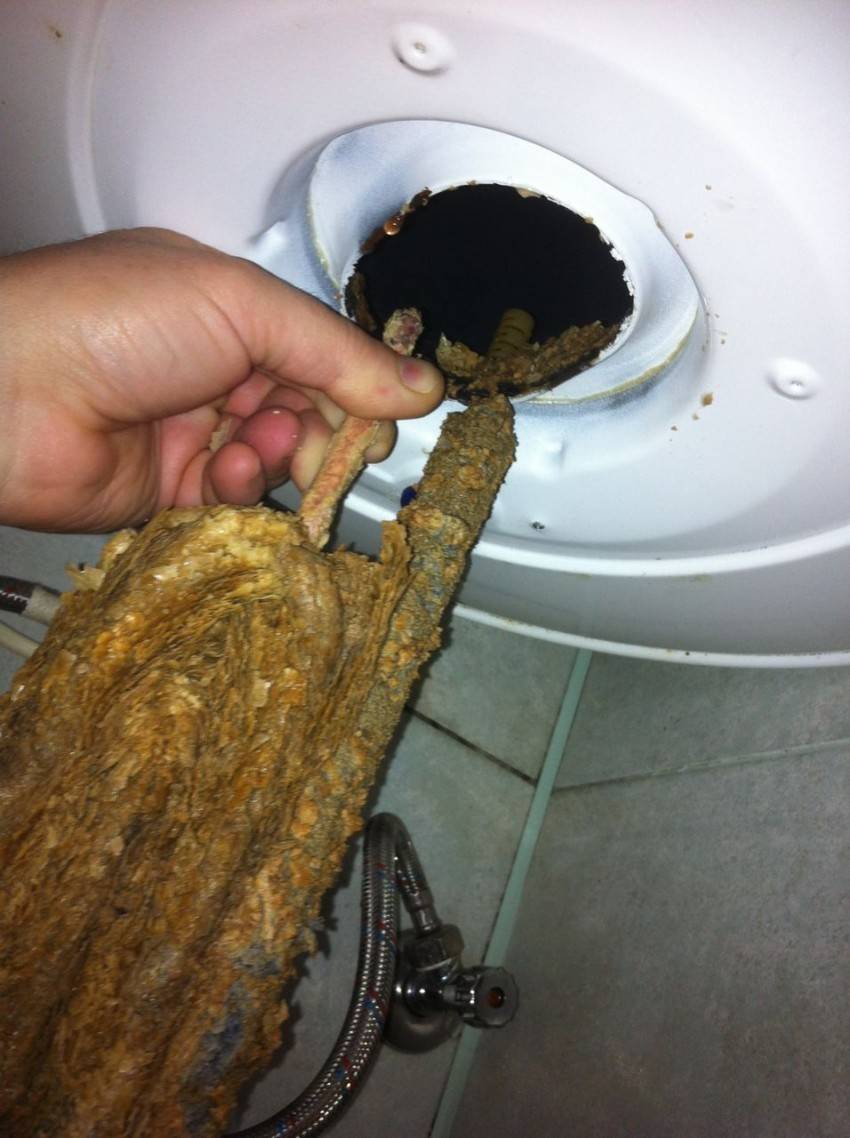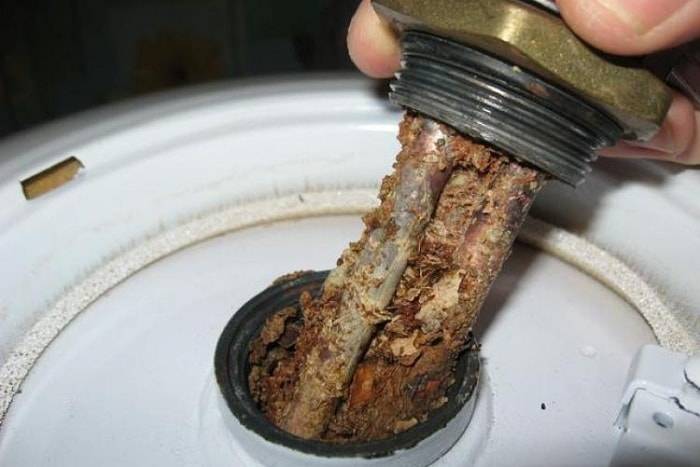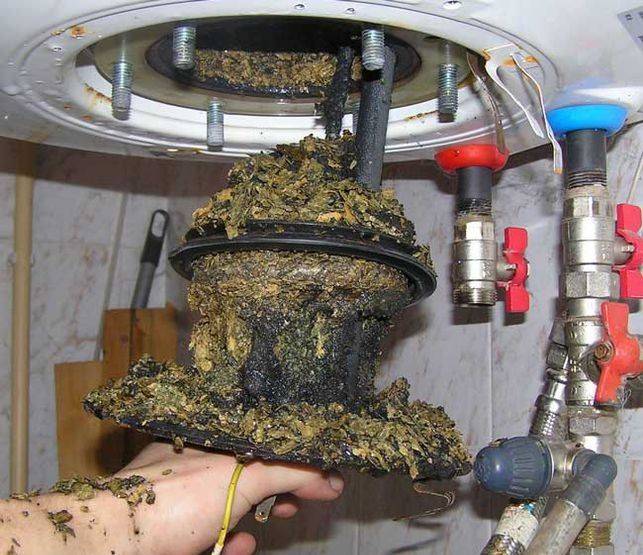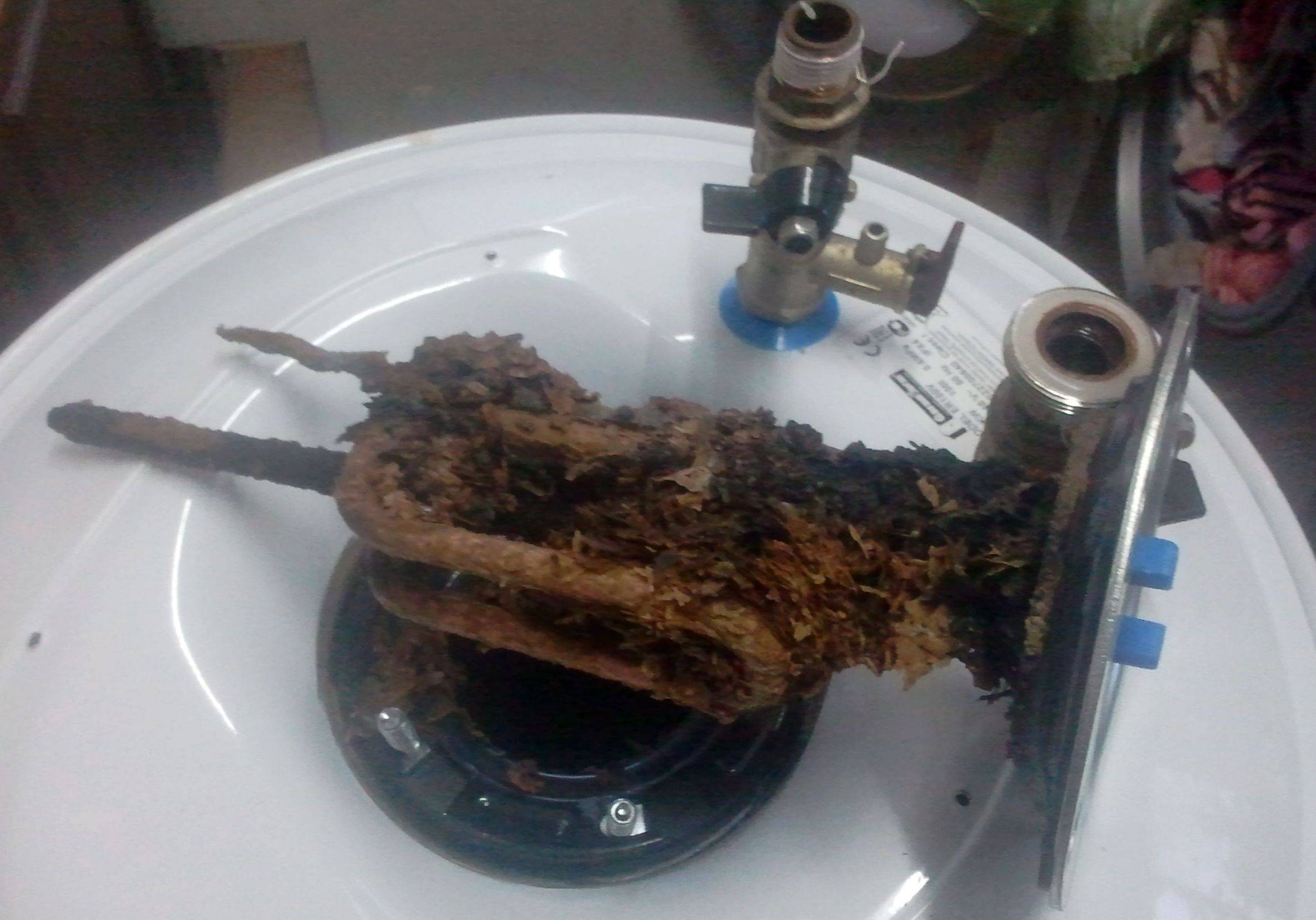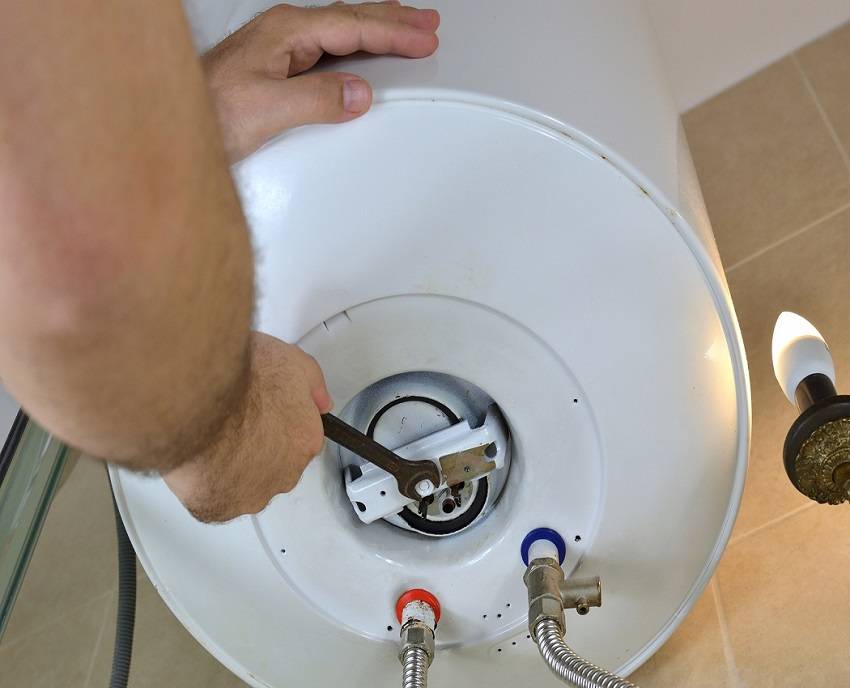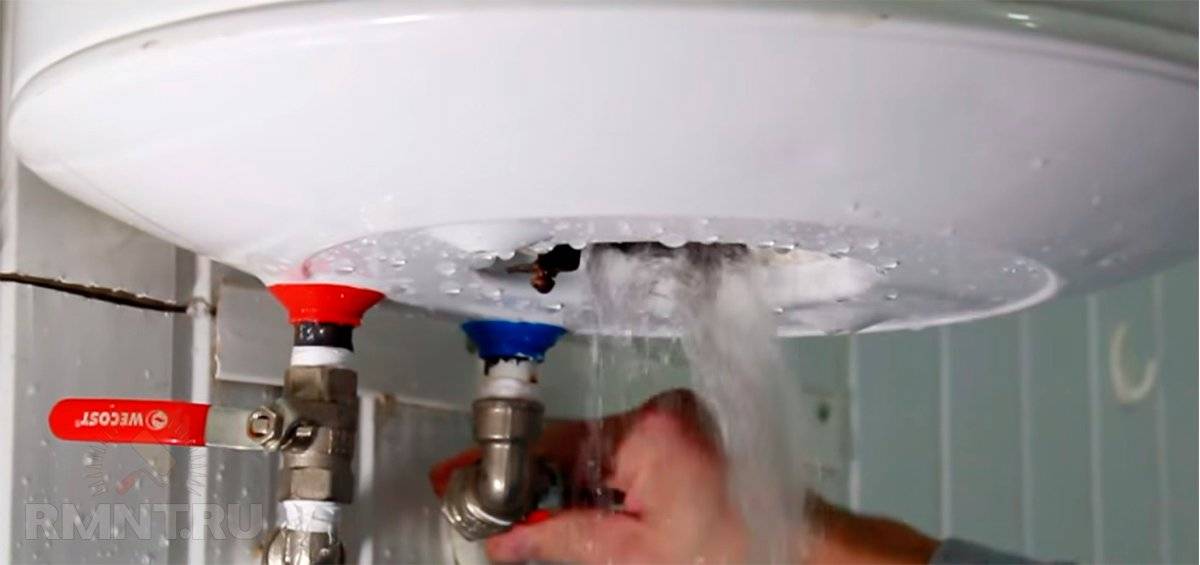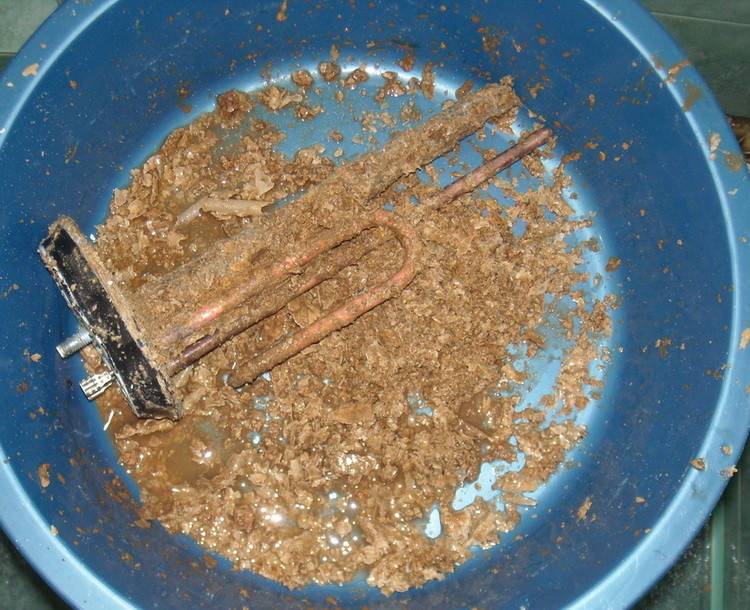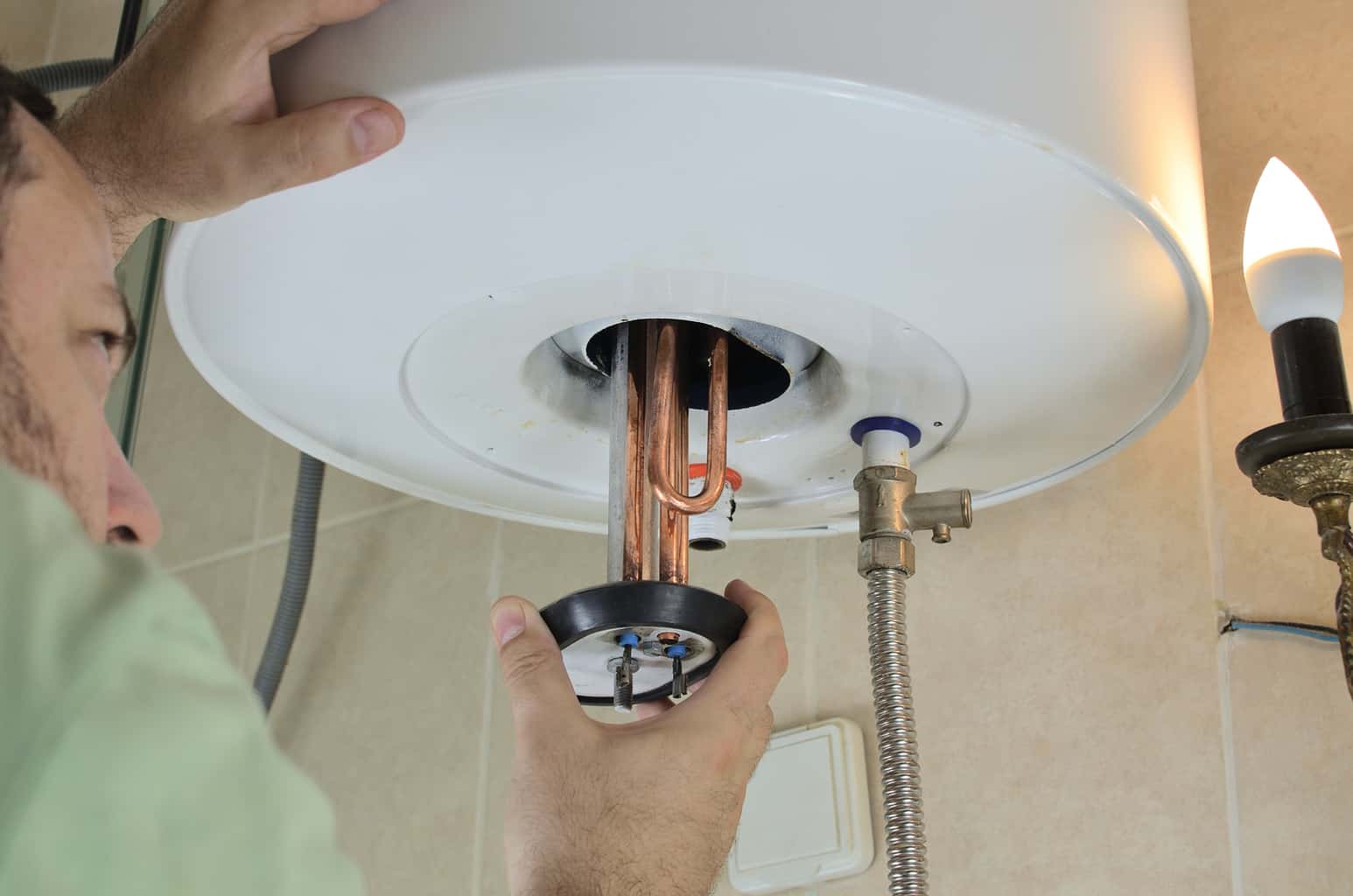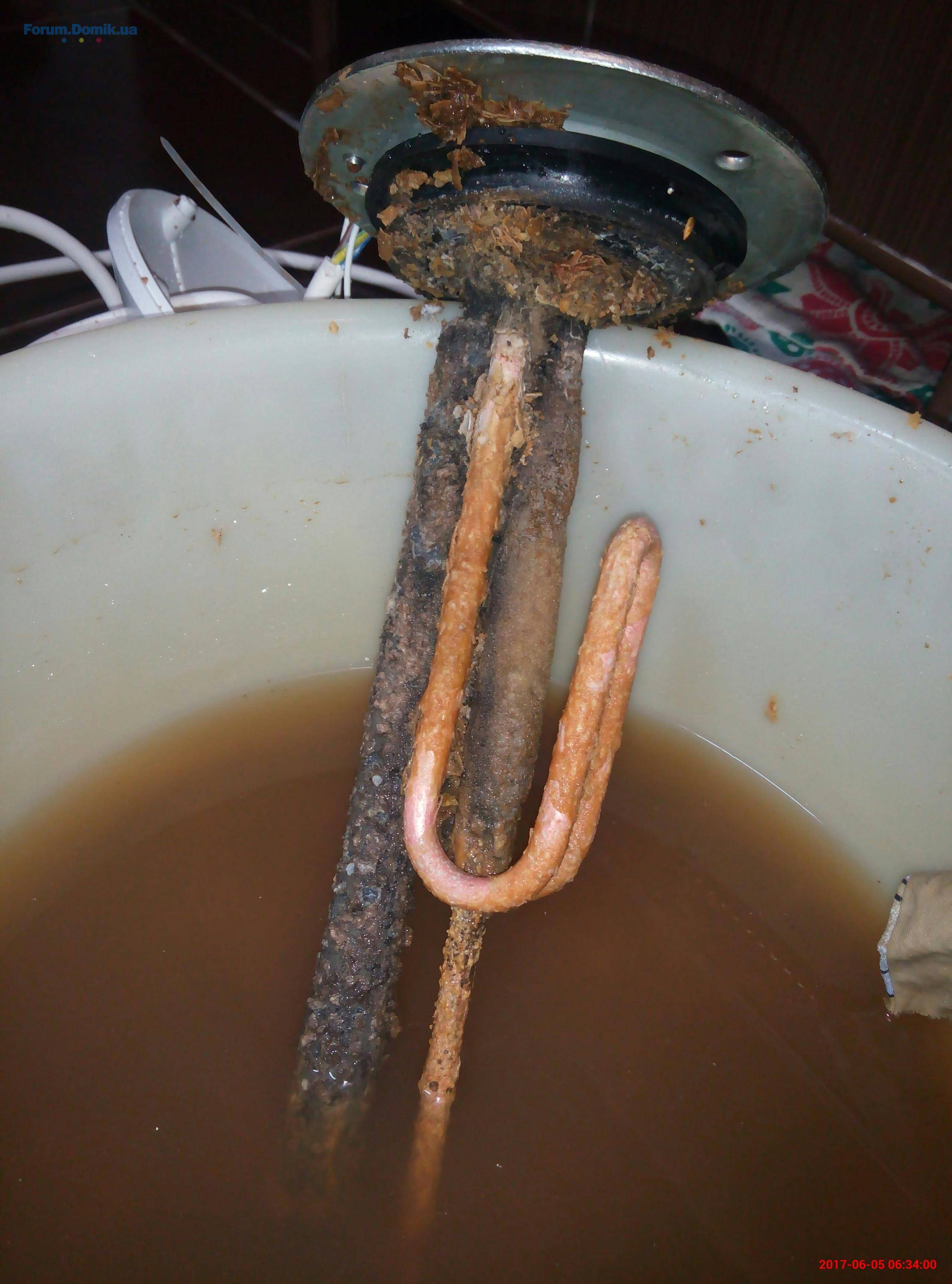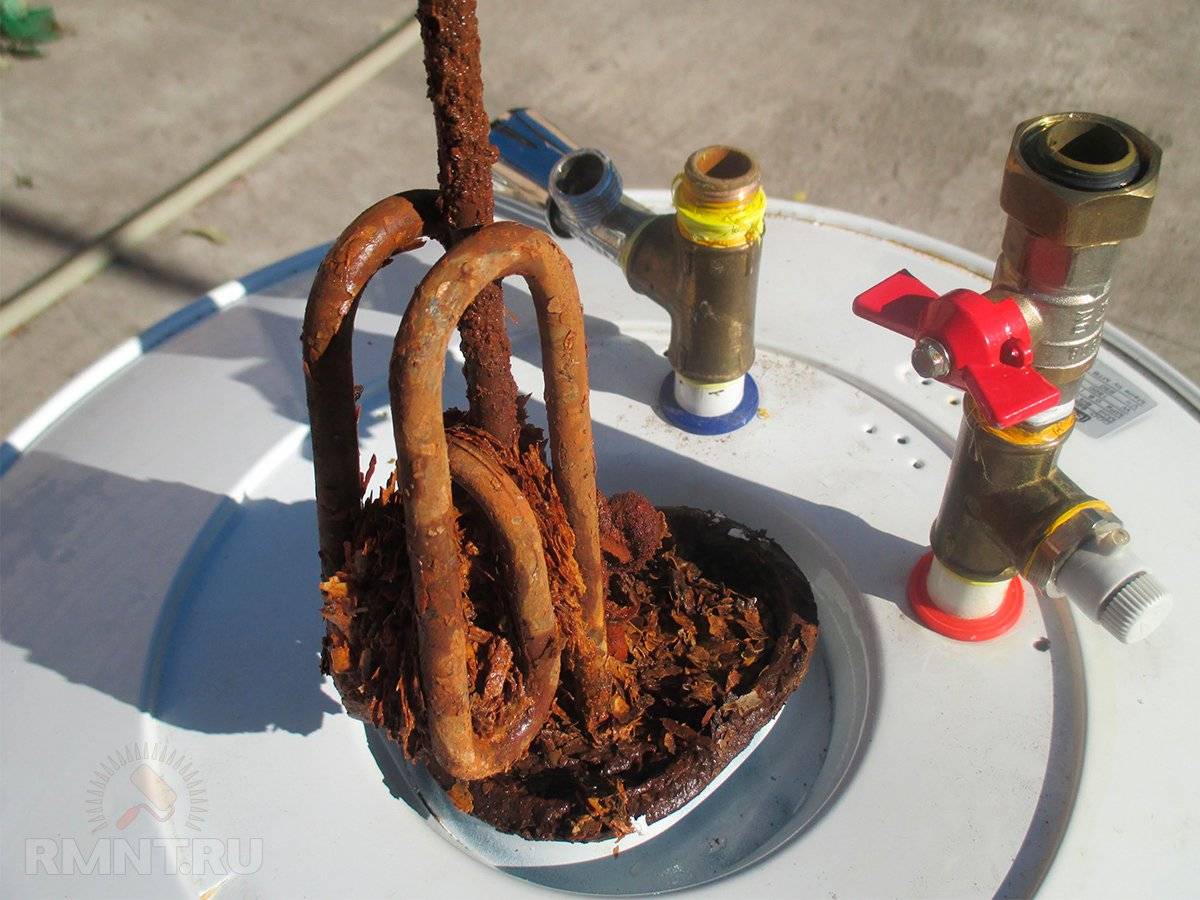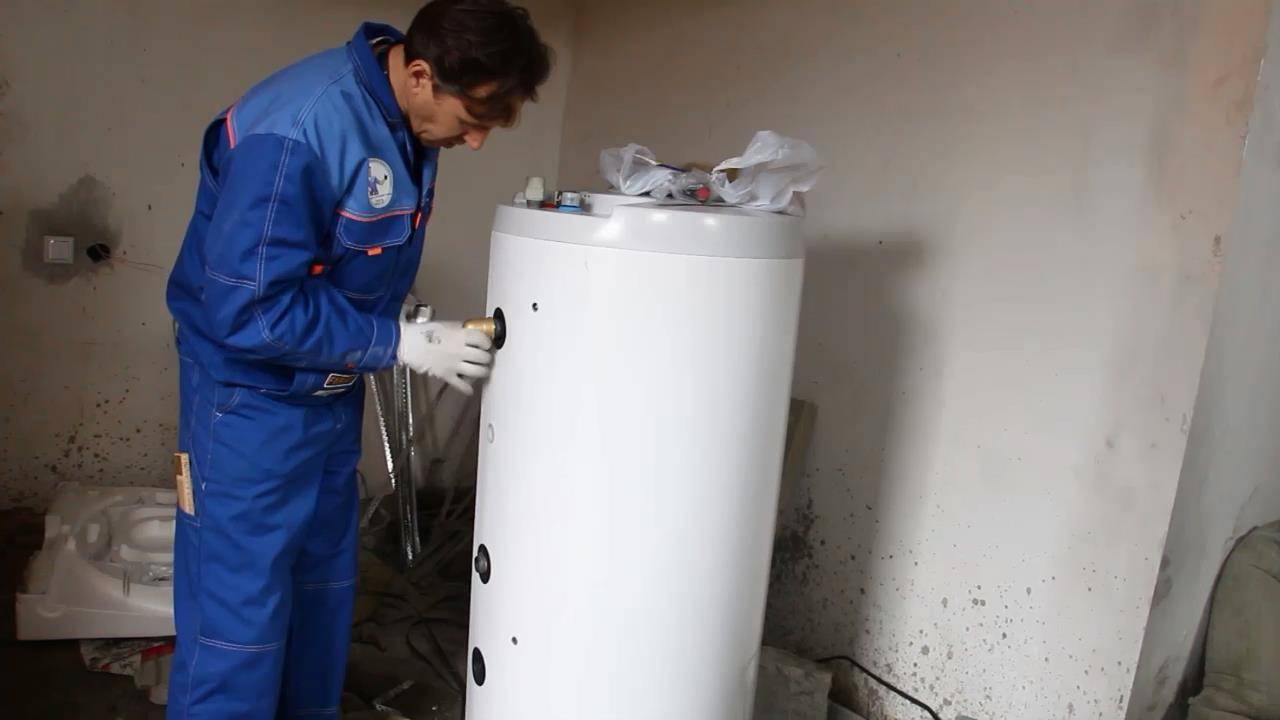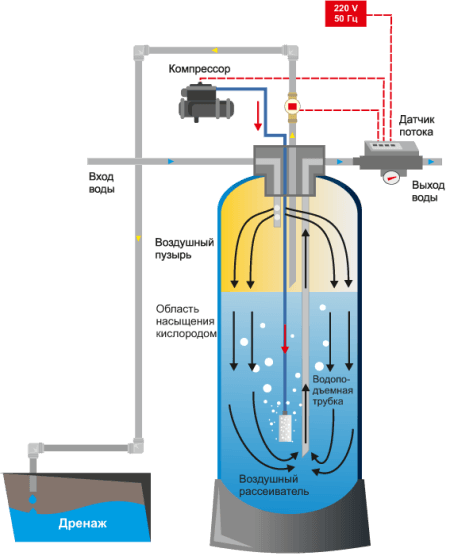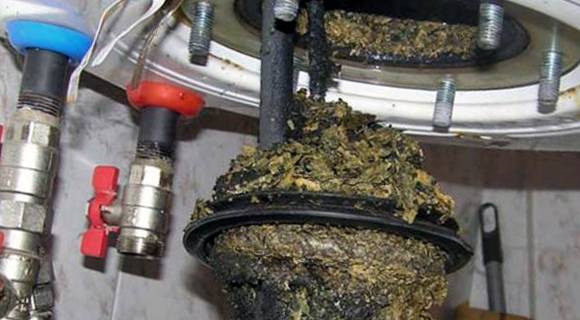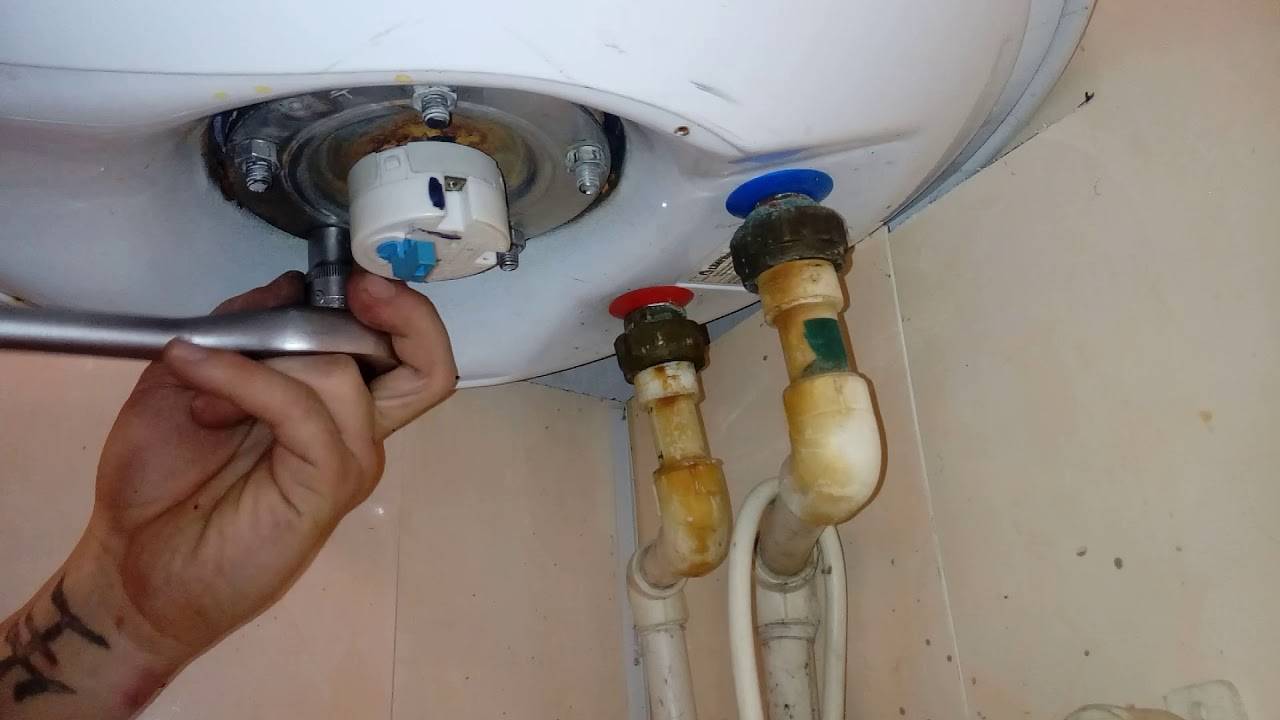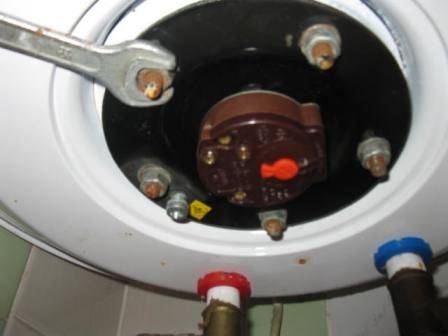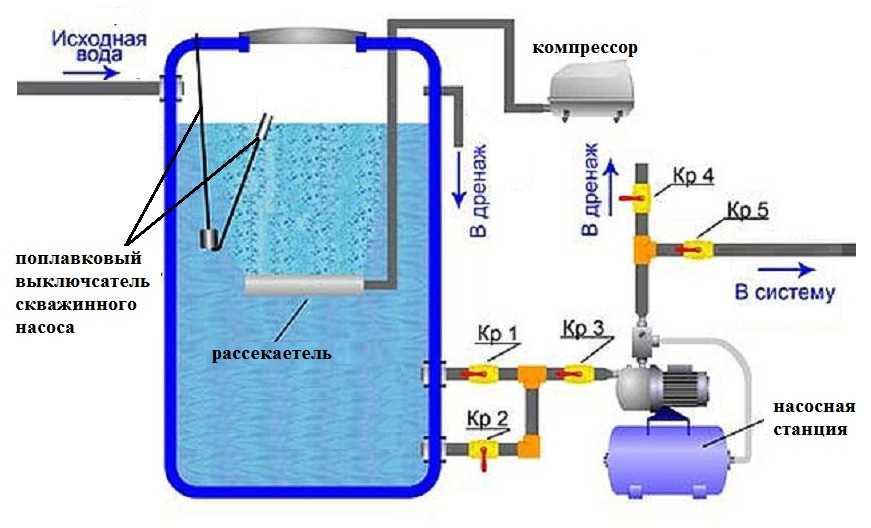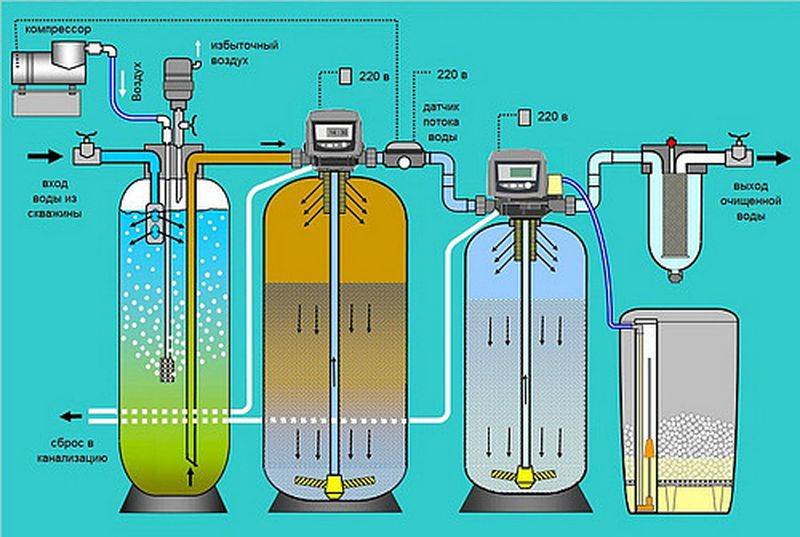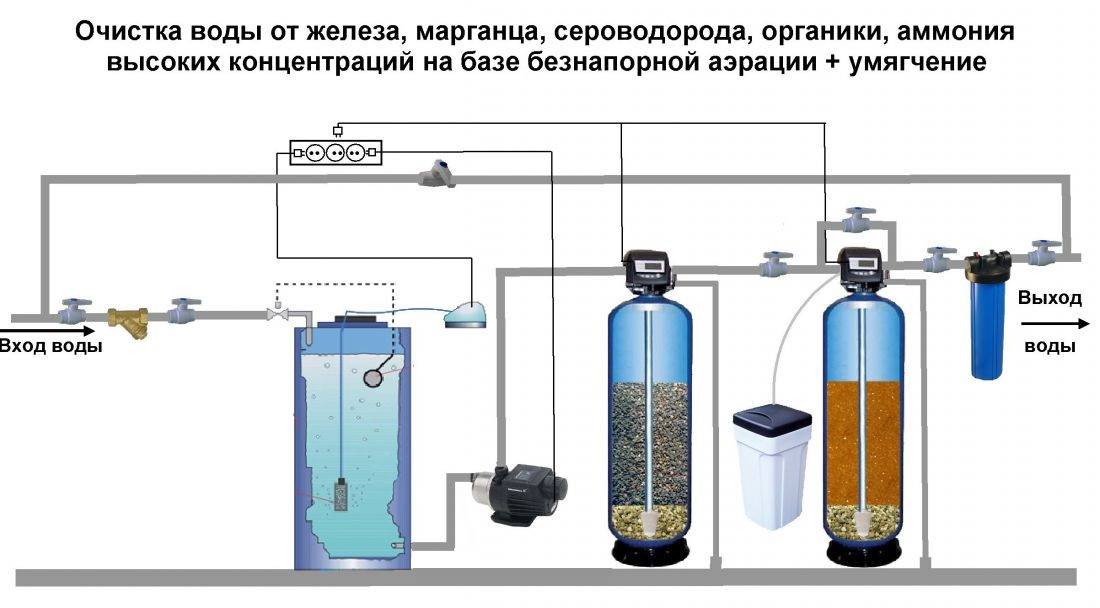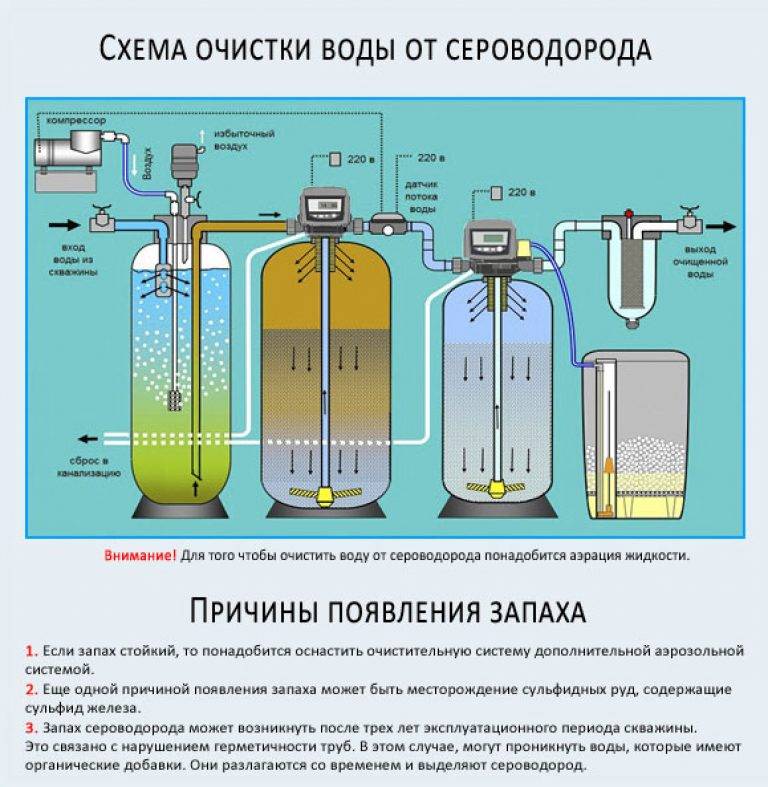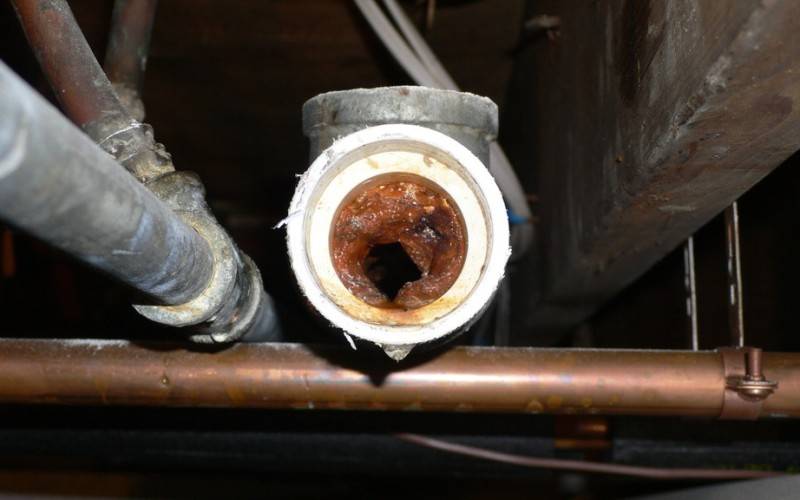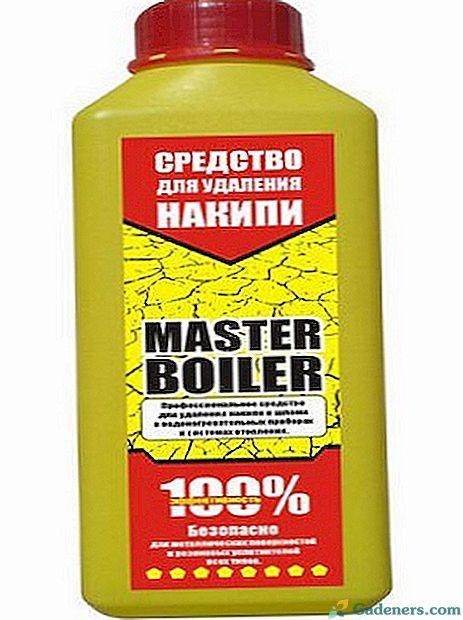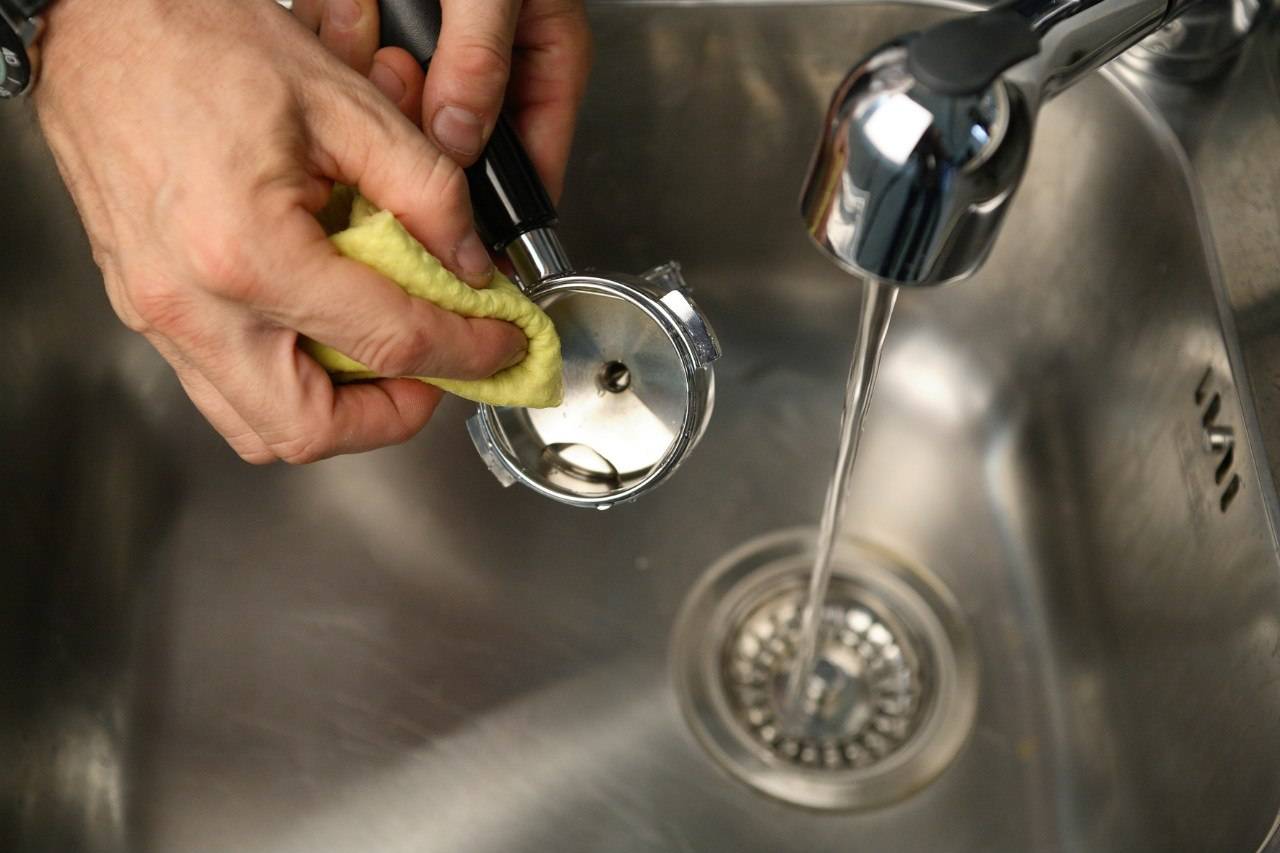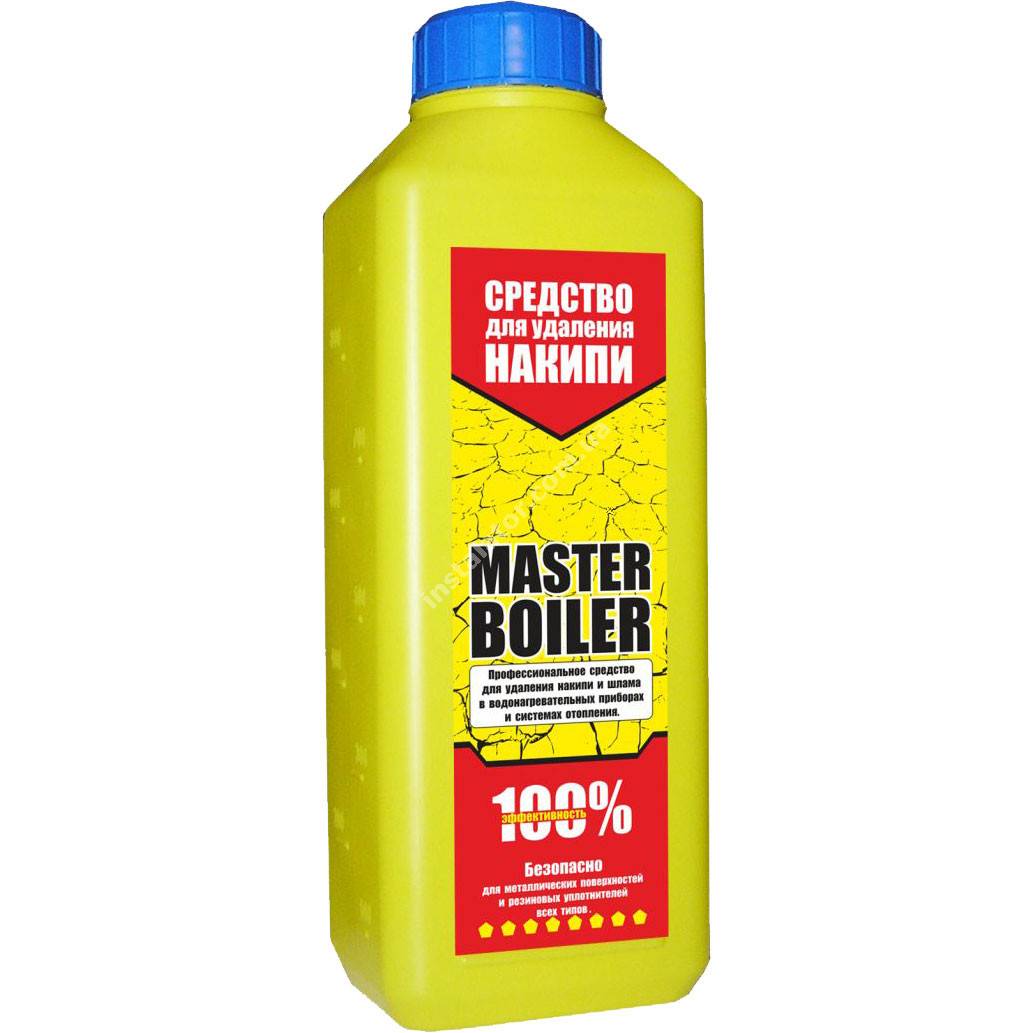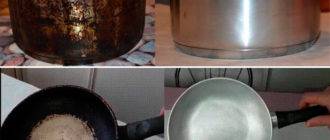The reason is in the water source
Microorganisms are usually the primary source of unpleasant odors. They can be located in the boiler itself or in a reservoir, pipes, a reservoir from which water enters the house.
Most often, water begins to stink in a boiler installed in a private house, where it comes from a well or a deep well. Hydrogen sulfide can be found in underground waters, and it is he who causes a peculiar rotten smell. It is very easy to check this version, you need to:
- pass water from the tap for 5 minutes;
- dial in a bottle;
- shake and smell.
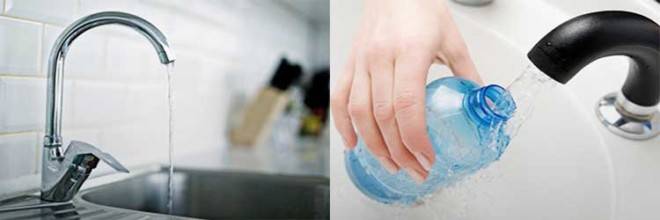
If cold water has an unpleasant odor, then naturally the hot water from the water heater will stink too.
There are several ways to get rid of the smell. The first is to deepen the well. In this case, the layer with water containing hydrogen sulfide will remain at the top and the pump will take a cleaner liquid.
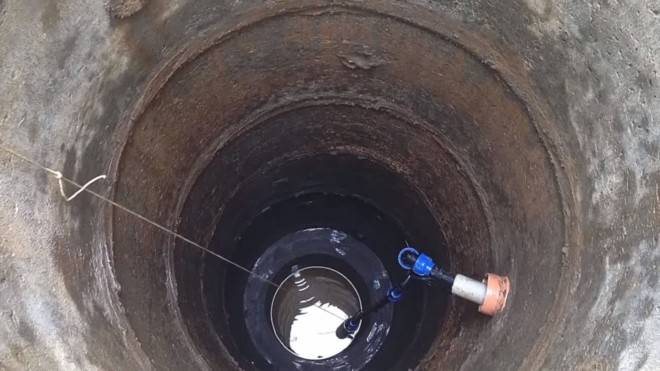
Sulfur bacteria are removed from the well by flushing with chlorine solution. This can be done by specialists. Bacteria are harder to remove from a well.
The second way to fight is to put on filters. There are highly purified filters that eliminate any contamination, including odor. Charcoal filters can remove odors, but they must be changed frequently. An effective way to eliminate trouble is to install an aeration column.
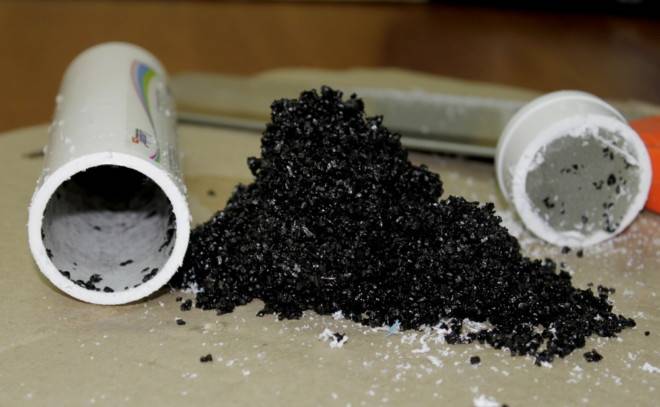
Finally, you can contact the service company, the utility responsible for the water supply, and ask them to take action.
How to clean a water heater
For convenience, it is best to stick to the following cleaning order.
Before working on the boiler, it must be disconnected from the power supply. It is more convenient to do this:
- De-energize the heater and make sure it is not connected to electricity.
- At the bottom of the device (usually there) remove the plastic protective cover. It is bolted on, so you need a suitable screwdriver to unscrew it.
- Carefully disconnect the wires from the thermostat terminals and from the container itself.
- Disconnect the power cable from the input. After that, you need to insulate the bare wires.
Now you can safely carry out other work. But before proceeding with cleaning, it is necessary to disconnect the electric heater from the water supply system and drain the remaining water from it.
Scale on the boiler
It's easier to do this:
Wait until the water in the tank has completely cooled down.
Shut off the cold water supply.
It is important to open the hot water supply. This can be done on each of the faucets installed in the apartment.
Now you can drain the water
To do this, you need to find a suitable hose and put it on the check valve reset. Place the other end of the hose in a free container or toilet. Then press the valve shutter and pour out the water.
Some heaters do not have a relief valve. This feature is more common among the models of the Ariston brands. In this case, to drain the water, you need to unscrew the valve itself. Before doing this, you need to install a container under it, otherwise you will have to collect water from the floor.
Before starting cleaning, you need to dismantle the heating element. Without this, it is impossible to get to the inner space of the boiler. On all models of heaters, the heating element is fixed in a similar way. To remove it, you need to unscrew the nut, which is located at the output of this part. After that, the heating element, the metal plate and the seal are easily removed.
Latest articles
Construction and home improvement
Building your own house is actually not that difficult, because you just need to prepare the foundation, erect the walls and dig the roof. However, immediately after this, real difficulties arise, consisting ...
Shower head "tropical rain": advantages and disadvantages
Nowadays you will not surprise anyone with ordinary shower heads, so many more and more often look at such products as a tropical rain shower head. The fact is that she not only looks extremely ...
What influences the price of a rented apartment?
When a person plans to improve his financial condition by providing housing for rent, he invariably asks the question of cost. This means that the first thing he thinks about is ...
Installation and connection of an intercom in an apartment: step by step instructions
Installing an intercom with your own hands, of course, is a rather complicated procedure, but quite possible. The main thing is to follow the instructions clearly. Self-installation of an intercom in an apartment, despite all ...
What can be done with an old refrigerator in the country?
Collected the top options for using old refrigerators. Here's what happened:
You can put the old unit on the back wall, remove all shelves from it and use it as a reliable chest for ...
Is good ventilation so important for a comfortable stay?
The problem of the ecological purity of the air around us is one of the most discussed topics in the modern world. Many companies and government institutions are making tremendous efforts to ...
Aeration of water from a well
Chlorine proportional dosing or well water aeration
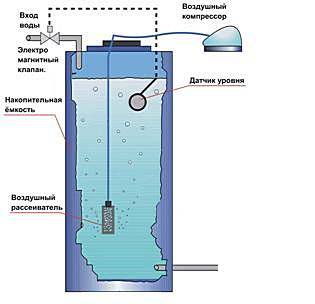
Storage tank with non-pressure aeration of water from the well
Unpressurized aeration is cheaper. A storage tank with free-flow aeration of water from a well is installed in the attic of a house. Water is supplied to the tank by a borehole pump, and the water intake goes by gravity.
We install an aerator with a connected pump in a pit, caisson or other room. Water from the well enters a hermetically sealed container with a tap and a valve for gas outlet. Under the action of the pump, air is pumped into the device, which displaces hydrogen sulfide. At the same time, an excess of oxygen in the water leads to the death of sulfur bacteria. An additional advantage in this case is the enrichment of water with dissolved oxygen, which in itself benefits the human body.
This method is not without its drawbacks. The main disadvantage is the bulkiness of the equipment, the need to purchase a separate aeration pump, as well as the energy intensity of the entire system.
An alternative to aerating well water can be its chemical treatment.
Many homeowners are confident that if a well is drilled deep enough to produce artesian water, it will be clean a priori. And then they rack their brains - why does the water from the well smell like hydrogen sulfide?
In fact, the presence of hydrogen sulfide, iron, heavy metal salts and other impurities in it is far from rare. And drinking such water is not only unpleasant, but also very dangerous.
A non-pressure aerator is installed under the roof of the house, water from it enters the system by gravity
Recently, one of the clients who turned to us for the presence of a characteristic smell from the water which had not been previously. He had a 500 liter GA. So, if closer to the point, until the membrane in the GA was changed, then the smell did not disappear. The membrane was replaced and the smell disappeared, everything returned to normal. There was a lot of plaque inside the membrane ...
It can be even more banal - the air pressure in the GA has been at zero a long time ago. Naturally, the water is not renewed there and, accordingly, dies out. It is easily treated - the pressure is restored to 1.5 - 2.0 atm, then by repeated dialing and releasing water to 0.
How to protect an electric water heater from H2S
If the composition of the water is not the cause of the stench, then you should look for it in the contents of the boiler. When they are not used for a long time, they are not included in the network, bacteria develop and multiply, as in any container or natural depression with stagnant water.In electric water heaters, a chemical-physical process can also occur between the magnesium anode and water, as a solution of electrolyte substances and non-electrolytes (chlorides, sulfates, carbonates). The hydrogen sulfide problem can be solved by replacing the anode from one metal to another, which also provides protection against corrosion. On this issue, you should seek help from specialists.
If the hot water has an unpleasant odor, you should pay attention to its temperature. Legionella sulfur bacteria multiply if:
Legionella sulfur bacteria multiply if:
- the "comfortable" temperature for chemobacteria is maintained at 50 ° C;
- the entire volume of hot liquid is not used;
- there are areas in the tank where fresh portions of water do not flow.
Prevention and control of chemobacteria:
- Turn on the electric water heater at a temperature of 70 ° C and above at least once a month;
- Disassemble and clean the heater, remove scale.
- Rinse it to remove bacteria and their waste products.
- Disinfect the water heater with sodium hypochlorite solution (sold separately, included in bleach). It will eliminate the smell.
Attention! It is dangerous to increase the water temperature to 90 ° -100 ° С! On this matter, you should consult with the manufacturer's expert installer or other competent person.
Features of the design and principle of operation
Before you start cleaning, you need to understand the main features of various types of structures, as well as the principle of their operation.
Cumulative
Most often, people install storage-type boilers in apartments. The main difference between these models from other products is that the heating component is located inside the tank. The liquid is heated using electricity. During the heating process, the liquid is constantly circulating inside the product.
Among the disadvantages of storage models, one can single out the fact that they consume electricity throughout the day. Because of this, one device consumes more than one kilowatt of electricity per day. Therefore, such models are not suitable for people who want to reduce their energy consumption.
Flowing
People who are interested in more compact products should pay attention to flow-through boilers. Such structures are very small, since their size does not exceed the dimensions of an average shoe box.
Thanks to this, flow-through heaters will not take up too much space and will fit into any interior.
The main advantage of this boiler system is its cost, since it is several times cheaper than storage technology. They also do not consume a lot of electricity, which makes it possible to reduce electricity consumption when heating a liquid.
Electric
Products powered by electricity are very popular. They are known for their ease of use and reliability. Heating of cold liquid is carried out using a heating element, which is installed inside the heating system. Tanks for electric models are made of metallic materials that do not rust and prevent the development of corrosion.
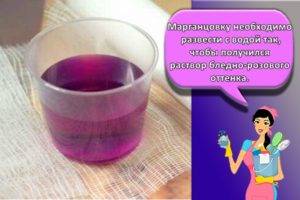
The advantages of electric boilers include the following:
- ease of installation, allowing people who have never done this to install the structure;
- the ability to connect the product to two or more sources of water intake;
- a large supply of heated liquid.
Among the disadvantages of electrical structures are:
- prolonged heating of the liquid;
- bulkiness.
Gas
Such containers heat the liquid using a built-in gas burner. Boilers of this type are available with a closed and open combustion chamber. It is recommended to use closed models, as they do not need additional air flow to improve combustion.
Gas boilers have the following advantages:
- low cost compared to electrical structures;
- corrosion resistance;
- high-quality thermal insulation, thanks to which the water will not cool for a long time.
The disadvantages of gas boiler structures include the following:
- big sizes;
- continuous gas flow to maintain liquid temperature.
Diagnostics
There are several common reasons for the appearance of an unpleasant odor that must be identified and eliminated in time.
The problem with the storage water heater
Often, the inside of the boiler begins to smell unpleasant due to breakdowns of the storage water heating element. There are the following reasons for water heater breakdowns:
- Unstable voltage in the network. Sometimes a part stops functioning properly due to voltage surges. Therefore, it is recommended to connect electrical equipment to special stabilizers.
- Formation of corrosion or scale on the surface. Over time, rust and other deposits appear on the water heater, which impair its performance. Therefore, it is necessary to periodically clean the heating element.
- Improperly carried out repairs. If a small malfunction of the heater is not eliminated in time, over time it will stop working.
Water quality
Another reason why the boiler can smell unpleasant is poor-quality water. Often a poor quality liquid is supplied from the water supply system, which initially has an unpleasant odor. Since it can be stored inside the tank for a long time, the aroma remains even after the water is removed from the boiler.
Pipe inspection
If an unpleasant stench appears in the boiler, it is necessary to check the pipes and the material from which they are made. Most often, the aroma appears when connecting a boiler structure to a plumbing system made of metal pipes. Over time, rust and plaque appear on their walls, which begins to smell unpleasant. The smell, along with the water, enters the tank, which is why a stench appears in it. Therefore, it is recommended to inspect and clean the pipes every six months.
Stagnant water
The unpleasant odor is often caused by bacteria that accumulate inside the boiler tank. They accumulate due to the fact that cold water is in the water heater for a long time. This stagnation promotes the development of bacterial microorganisms. Therefore, experts advise, for prevention, to warm up the water at least once every 20-35 days. If you heat the liquid too often to low temperatures (35-45 degrees), then because of this, a stench will also appear.

Phenols and formaldehydes
If the water inside the boiler starts to smell like anise, plastic or gouache, then it's time to check the water for formaldehyde or phenol. These trace elements are very dangerous, as they can harm the human body. Even a small amount of substances leads to a deterioration in the functioning of internal organs and headaches. Components often enter the liquid from the surface of the plastic pipes.
Magnesium anode
Most boiler structures have a magnesium anode that is used to prevent rust from forming on the inside of the tank. With prolonged use, the anode wears out and must be replaced with a new one. If you do not make a replacement in time, the water will have a metallic taste and aroma. To eliminate this problem, you will have to change the anode and rinse the boiler tank.
Well
Sometimes people do not take water from the mains, but from their own source of water. Therefore, the problem of an unpleasant smell in the tank may be related to the well. It can contain a lot of hydrogen sulfide, which dissolves in the water and gives it a smell. It resembles the scent of rotten eggs. If such a stench appears, you will have to install a filter in the well to eliminate hydrogen sulfide. This is the only way to get rid of the stench.
Why is it necessary to descale the boiler?
If there is a storage boiler in a private house or apartment, then you should know that it periodically needs cleaning. To be more precise, its two main parts:
- the inner surface of the tank;
- the surface of the heating element.
Descaling the boiler is a mandatory operation. If you do not carry it out regularly, every few months, then this threatens with an increase in energy consumption and possible damage to the boiler.
The reason for this is the low thermal conductivity of the scale formed on the surface of metal objects. As a result, the heating element needs to work longer to heat a large volume of water. Which is the reason for the increase in electricity consumption.
Ultimately, if you do not remove the scale from the heating element, the following will happen:
- the water will stop heating at all or will be heated very slowly;
- The heating element will fail due to overheating.
Of course, many models of water heaters are equipped with special thermostats that prevent the heating element from overheating. But often this is not reliable enough protection.
Important Tips
Cleaning the boiler is a simple process, but it is better not to carry out the procedure alone - water heaters can be very heavy.
- If you use chemicals, make sure that they do not come into contact with the rubber seals - they may lose elasticity, as a result of which the boiler will leak.
- Double check every operation you perform. The water heater will not work after assembly if done incorrectly.
- Connect and disconnect power only when the tank is filled with water.
- When you have finished flushing, fill the boiler with water and wait for a while. If the flange does not leak, great, you can use the device.
- If you use chemicals, be sure to wear a glove and face shield.

Now you know how to clean the boiler without calling the master. This is a fairly simple and relatively quick process that any host can handle. The main thing is to carry out this operation in a timely manner so that the device will serve you for a long time. Remember: professional boiler repair is a costly process.
Do-it-yourself cleaning of water heaters inside from the smell
Over time, many owners of water heaters notice that heated water has begun to stink terribly. This unbearable smell can have several reasons:
- Dirty water is supplied to the boiler. If the water contains a lot of impurities, especially hydrogen sulfide, it gives off an unpleasant odor.
- There are specific bacteria and fungi in the tank. Such animals are born in limescale on the walls of the container. As long as there are not many microorganisms, the smell of water does not change. But over time, their number increases, and the water begins to stink.
- Cheap or damaged plumbing. Poor quality tubular plastic transfers its chemical odor to water. And the old metal plumbing is ideal for bacteria and fungi.
It is impossible to sniff water with hydrogen sulphide
There is a way to determine which of these cases is the case:
- Spill cold tap water within 5 minutes. Then place a clean bottle under the stream and close it after filling. After half an hour, you need to open the bottle and check the smell of the water. If it smells bad, it's a problem with pipes or water.
- If the cold water from the bottle smells normal, the cause should be looked for in the boiler itself. To do this, again you need to fill the plastic container, but only from the hot tap closest to the water heater. We wait 30 minutes and sniff. If you cannot inhale from the bottle, then harmful microorganisms have started up in the tank.
In order to eliminate unpleasant odors from bad water or rusty pipes, you can do the following:
- Install a filter that removes foul-smelling gases from the water.
- Complain to the SES about the low quality of tap water.
In the first case, you don't have to wait for someone to come and fix the problem.Therefore, if you do not have the strength to endure smelly water, it is easier and faster to put a filter.
Problems with microorganisms in the boiler are solved differently:
- Tank sterilization. The water in the boiler is brought to a boil and remains in this state for a long time.
- Descaling the water heater (see above). This will destroy a favorable environment for the reproduction of microbes and bacteria.
So that stinking water does not go out of the boiler again, simple preventive measures must be followed:
Do not leave water in a disconnected water heater when it is not in use for a long time.
Descale the tank from time to time.
It is advisable to install a filter.
Pay attention to water quality. If necessary, contact the sanitary and epidemiological station.
Expert advice
Use a boiler to heat water up to + 55 ° С and above. Remember that the optimum temperature for the reproduction of most microbes is + 30 ... + 40 degrees.
Water in an unused boiler stagnates, bacteria and microorganisms grow in it. If you do not plan to use hot water for a long time, completely drain its remains from the water heater and turn it off.
Fight not with the effect, but with the cause. It is not enough to remove the smell and taste of water; you need to establish its source and protect against it. Prevent the appearance of unpleasant odors in the future.
Flush the boiler at least every six months. If it is still under warranty, contact the service center. They will tell you how you can rinse it yourself so as not to violate the terms of the warranty. Some SCs themselves perform flushing and maintenance of the water heater.
Be sure to install a filter on a cold water pipe, at least the simplest one. Any contamination entering the boiler is food for bacteria. The ideal option is to install a reverse osmosis filter.
At the slightest sign of foreign smell in the water, rinse, clean and disinfect the water heater tank. The longer you put it off, the more likely germs are to spread through pipes and hoses.
Causes of a fetid odor
When the water from the boiler stinks, the causes and remedies for the problem depend on the location of the microscopic organisms that produce hydrogen sulfide. This can be the water heater itself or the water supply system from where the water flows. In this case, the liquid itself is also capable of causing a stench.
Chemical processes
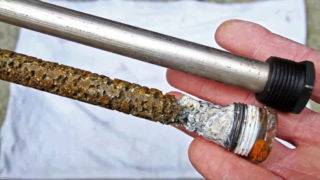 The chemical reaction of magnesium in the anode and sulfur gives an unpleasant smell of rotten eggs
The chemical reaction of magnesium in the anode and sulfur gives an unpleasant smell of rotten eggs
If odorless water comes out of your home boiler, the problem may be chemical reactions inside the appliance. Sulphides are present in the water from the mains, which react with the magnesium anode located inside the water heater. Due to them, water can begin to produce hydrogen sulfide and provoke a rotten smell.
If the problem lies in the material from which the boiler is made, the water will also have a smelly smell mixed with gouache, plastic or anise. It produces formaldehyde or phenol - substances hazardous to health that provoke headaches and insomnia. They are distinguished by low quality plastic, from which water pipes or the boiler itself are made. This problem must be solved by replacing pipes or a heating device.
The water heater rarely turns on
If the heater is rarely used, the water stays in it for a long time and turns into an ideal environment for the spread of bacteria. The stench is one of the manifestations of their vital activity. The unit must be rinsed and disinfected as soon as possible. The hose is disconnected from the water pipe and whiteness is poured into it along with ordinary water, then the tap is turned off, the hose is connected to the pipe and the valves are opened. Once the water has been drawn, the heater can be turned on.
Heating water to a low temperature
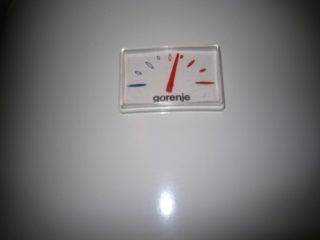 At temperatures up to 40 degrees, microbes actively multiply in the water, while the water begins to stink of a swamp
At temperatures up to 40 degrees, microbes actively multiply in the water, while the water begins to stink of a swamp
If water stinks in your home boiler, the reason may be insufficient heating.Temperatures up to 40 degrees are a favorable environment for bacteria that cause the smell of a rotten egg or swamp inside the device. During the operation of the boiler, it is better to give it the opportunity to heat up to full power, otherwise very soon it may start to stink.
The presence of a hydrogen sulfide component in water
The presence of hydrogen sulfide gives off a special smell of rotten eggs, such a substance is more often formed in heaters that are not used constantly. Periodically, water must be consumed in it. Sometimes microbes can withstand temperatures above +60 degrees, but this does not apply to all bacteria. To eliminate the odor, the unit is completely warmed up to the maximum temperature and disinfected using special means.
Limescale inside the appliance
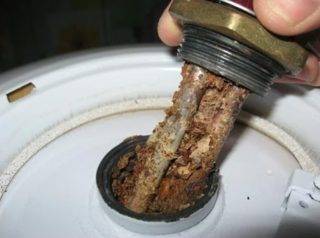 Scale may give off a rusty odor
Scale may give off a rusty odor
Limescale on the inner surfaces of the appliance, including rubber and iron, often provokes an unpleasant stench. You can remove it manually or by washing with the help of special or improvised means. To clean the body of the water heater and its parts, you need:
- Disconnect the heater from the mains.
- Empty the tank completely.
- Disconnect the elements securing the flanges to the heating element.
- Get the heating element and remove the plaque in it with a knife, lower the mechanism inside the solution prepared from citric acid until the scale disappears completely.
- To clean the case, the walls are washed with a soft sponge and the dirt is washed off under the tap. If the layer of plaque is too dense, it is better to use a descaler according to the instructions.
How to empty a boiler
The instructions for use indicate the need for cleaning procedures at least once every 6 months. This is guaranteed to protect the equipment from most breakdowns and seriously reduce the chances of lime scale appearing, thereby extending the life and improving the quality of work. The preventive maintenance manual clearly indicates the sequence of actions to be taken: 1. Shut off the low temperature water supply. 2. Open the hot water tap. 3. On the outlet piping, the relief valve must be open to remove all liquid from the equipment. 4. After all the contents of the boiler have been taken out, you can proceed directly to cleaning the equipment with your own hands and without the help of specialists. 5. You need to remove all foreign particles that have accumulated on the bottom of the equipment during operation. At the same time, it is advisable to check the general technical condition of the tank and all the parts in it. Various procedures for cleaning a water heater are not particularly difficult to perform. You can use a hose with water after disconnecting the tank from the power supply. If the specified cleaning method did not solve your problem and calcium deposits are visible on the equipment, then there is a need to purchase means for cleaning BKN. You can purchase ready-made chemicals at specialty hardware stores or household chemicals stores. You can also make your own flushing fluid using some of the ingredients that almost everyone has. You will need vinegar or citric acid. Pour the agent into the tank and in most cases this will be enough, you can completely clean the agent without taking it out of service. It is only necessary to turn off the water supply for a while and follow the flushing instructions: 1. Shut off the water supply. 2. Empty the tank by a third. 3. Connect the hose to the drain pipe. 4. Use chemicals. 5. Place a funnel over the end of the hose. Before removing the cleaning agent, raise the hose so that it is not below the water level. After using chemistry, you must fill the container with water and let it stand for about half an hour. After that, it is necessary to start the boiler and heat the heat exchanger to about 40-45C, then wait an hour. Then you need to fill the tank with water twice in a row and empty it.After flushing procedures, it is recommended to press the system. Conditions of increased pressure are created in the tank, exceeding the operating level. This is done in order to check the equipment for all sorts of malfunctions. The procedures must be carried out by disconnecting the boilers by the hydrostatic method of pressure = 1.5 from the working pressure, but exceeding 0.2 MPa (2 kgf / cm at (2Ati)) at the bottom. t-ke Sis-we.
How to eliminate the unpleasant odor of water from the boiler
Poor quality water or bad pipes can be defeated in two ways:
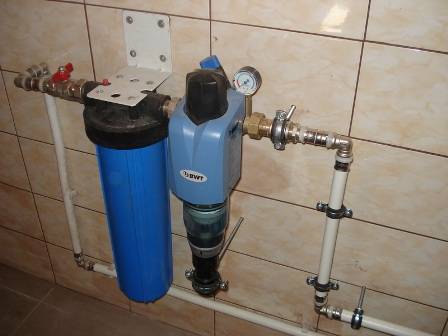
Water purification filter
- Installing a filter that absorbs gaseous inclusions and volatile ethers.
- Complaint to the sanitary-epidemiological service about water quality.
Both methods guarantee 100% elimination of unpleasant odors. Only in the first case you will personally pay for the solution of the problem, having received an instant result. And in the second case, the "administrator" of the water supply system will eliminate the smell, delaying this work for a long time.
The arrangement of the filter unit is carried out as follows:
- The valve in front of the "water" meter closes.
- A cut is made in the pressure branch of the domestic water supply system that supplies cold water to the boiler.
- Threaded fittings are mounted on the ends of the cut pipes.
- Ball valves are placed on the equipped threaded sleeves.
- The filter housing (glass) is equipped with American fittings.
- Threaded fittings of American women are screwed into the branch pipes of the ball valves.
Problems with the "hot branch" are solved a little differently - you can remove the smell of hot water from the water heater in two ways:
- By boiling the boiler for a long time, during which you sterilize the storage tank.
- By cleaning the boiler from scale - destroying the environment for the development of microorganisms, we get rid of the smell for a very long time.
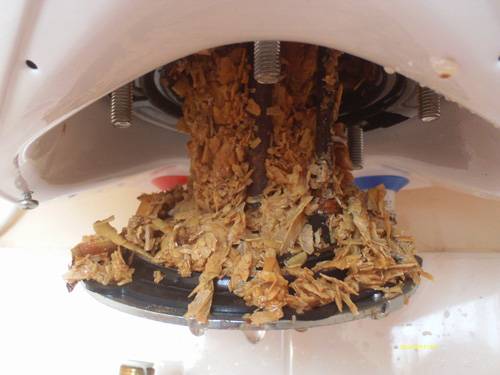
Scale on ten
At the same time, the simplest way to eliminate the unpleasant odor from hot water is to "boil" the boiler, which is implemented as follows:
- The central water valve closes.
- The hot water tap closest to the boiler opens.
- After emptying the boiler tank, the valve is closed and the valve is opened.
- After filling the boiler, its thermostat is “unscrewed” to the maximum temperature, programming to heat up to 80-90 degrees Celsius.
- After 5-6 hours, the above steps are repeated again.
The water heated above 60 ° C "pasteurizes" the container, thinning out the colony of microorganisms. And repeated repetition of this procedure suppresses the development of the colony for at least 3-4 weeks. Moreover, the whole attractiveness of boiling protection lies in the ability to use this technology right after reading this article.
Prevention measures
Hot water from the boiler stinks - we have already described what to do in this case in the previous paragraph.
Now let's look at preventive measures, based on which you can prevent the appearance of an unpleasant odor in the future:
- First, do not leave the water in the boiler turned off for a long time. If you will not use the water heater for a week, drain the water by turning off the central ball valve under the “cold” boiler nozzle and opening the hot water tap in the bathroom. After all, within a week your water heater will cool down and the microorganisms contained in the cold water will begin to “settle down” a layer of limescale on the walls of the storage tank.
- Secondly, do not neglect the procedure for cleaning the tank of the water heater from scale. If you cannot do it yourself, call the master.
- Third, don't skimp on filters. By installing a mechanical and absorption filter unit, you will not only improve the quality of the water, but also extend the life of your boiler.
- Fourth, monitor the quality of the water. Do not hesitate to contact the Sanitary and Epidemiological Station. You pay for water and have the right to demand the quality of the services provided by the "vodokanal".
We also advise you to look at:
- Features of the device of a boiler with two circuits
- Connecting an instantaneous water heater to a 220 V network
- Instructions for draining water from the boiler
- Gas heat gun - areas of application and principle of operation

